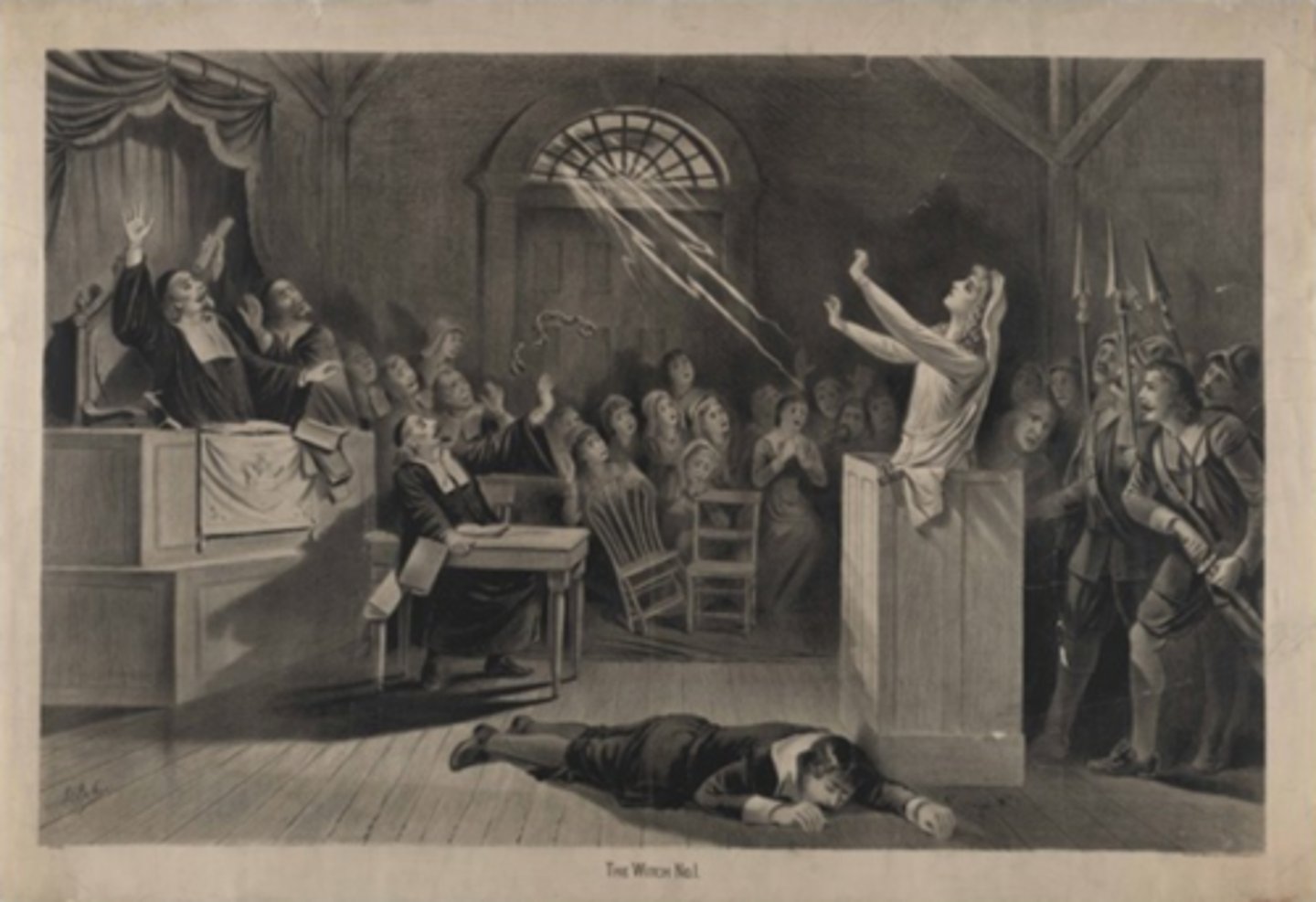JUSTICE STUDIES QUIZ 3 - SPEECH, WOMEN, GENDER AND LAW
1/68
There's no tags or description
Looks like no tags are added yet.
Name | Mastery | Learn | Test | Matching | Spaced |
|---|
No study sessions yet.
69 Terms
marriage --> who can marry whom?
marriage is a legal contract carrying rights/responsibilities of both parties
LEGAL REQUIREMENTS:
- person must be 18 or older in order to get married without parental permission
EXCEPTIONS/INCOMPETENCIES:
- pregnancy (may lead to coercive means of contract if person becomes pregnant before consideration of marriage)
- under legal age (18)
- mental deficiencies (e.g. insanity), being under influence of intoxicating substances at time of application
- closely related persons (siblings, parents, children, cousins) --> incest charge
- bigamy (two or more marriage contracts) --> up to 5 years in prison

REYNOLDS V. UNITED STATES (1878)
GEORGE REYNOLDS, a mormon, had been convicted of bigamy in Utah
- REYNOLDS claimed the right to multiple simultaneous marriages as his 'religious duty'
- court ruled that religious duty was NOT a valid defence against criminal indictment

SKINNER V. STATE OF OKLAHOMA, EX. REL. WILLIAMSON (1942)
- court stated that the right to marry was a 'basic civil right'
- HOWEVER, in adding that "marriage and procreation are fundamental to the very existence and survival of the race", the court was implicitly defining marriage as something that only the heterosexual/opposite-sex partners can enter into
- (SKINNER was actually a case about castration for an inveterate criminal offender; marriage came into it only because castration would prevent procreation --> court ruled that oklahoma's law mandating the castration/sterilization of certain "habitual criminals" was unconstitutional because it violated the 14th Amendment's Equal Protection Clause)

LOVING V. VIRGINIA (1967)
- overturned a number of state statutes banning interracial marriage
- RICHARD LOVING, a white man, and MILDRED JETER, a black woman, were residents of virginia but had to leave the state to get married
- on their return, they were arrested for violating virginia's anti-miscegenation law (a law against interbreeding involving persons of different races) and sentenced to 1 year of imprisonment --> was suspended on condition that LOVINGS left virginia
- court eventually heard the case and ruled that distinctions based on race were 'odious' (repugnant) and must be subject to 'the most rigid scrutiny' under the Equal Protection Clause of 14th Amendment

ZABLOCKI V. REDHAIL (1978)
- court ruled that 'deadbeat dads' had a right to marry
- ROGER REDHAIL was denied a marriage license based on the fact that he was seriously in arrears with his child support payments from a previous marriage

TURNER V. SAFLEY (1987)
- court ruled that even prison inmates have a fundamental right to marry

same-sex marriage PT. 1
- june 26, 2015 the US made same-sex marriage legal nationwide
- court has consistently declared the right to marry as part of the fundamental 'right to privacy'
- 1996, concerned about the supposed threat to traditional marriage posed by the growing demand for same-sex marriage, 342 representatives and 85 senators voted to pass DEFENSE OF MARRIAGE ACT (DOMA), which was signed into law by president CLINTON
- almost all states that did not already have laws prohibiting same-sex marriage initiated such laws modeled on DOMA
- however, the California Supreme Court ruled that same-sex marriage was constitutionally permissible in 2008, SMELT + HAMMER got married --> voters in California passed Proposition 8, amending the California Constitution to end the right of same-sex couples to marry there --> 2009, SMELT + HAMMER filed a lawsuit against California and the United States, arguing that both DOMA and Proposition 8 were unconstitutional + that DOMA violated due process and equal protection rights, free speech, privacy, and full faith and credit clause of Article IV of the Constitution (SMELT + HAMMER alleged that because other states were not required to recognize another state's same-sex marriage, this clause was violated, as was their right to travel as a married couple) --> August 2009, federal district judge dismissed the case on jurisdictional grounds without ruling on the constitutional merits of DOMA

Defense of Marriage Act (DOMA)
"In determining the meaning of any Act of Congress, or of any ruling, regulation, or interpretation of the various administrative bureaus and agencies of the United States, the word 'marriage' means only a legal union between one man and one woman as husband and wife, and the word 'spouse' refers only to a person of the opposite sex who is a husband or a wife"

same-sex marriage PT. 2
- February 7, 2012, a federal appeals court struck down California's ban on gay marriage
- May 30, 2012, a three-judge panel of the US Court of Appeals for the First Circuit (Boston) unanimously declared DOMA unconstitutional
- in a 5-4 decision in June 2013, the US Supreme Court struck down the pivotal Section 3 of DOMA restricting the terms marriage and spouse to heterosexual unions as unconstitutional under the due process clause of the 5th Amendment + guarantee of equal protection under the law
- UNITED STATES V. WINDSOR (2013) --> DOMA instructs all federal officials, and indeed all persons with whom same-sex couples interact, including their own children, that their marriage is less worthy than the marriages of others --> the conclusion of the majority opinion written by Justice Anthony Kennedy reads as follows: "the federal statute is invalid, for no legitimate purpose overcomes the purpose and effect to disparage and to injure those whom the State, by its marriage laws, sought to protect in personhood and dignity. By seeking to displace this protection and treating those persons as living in marriages less respected than others, the federal statute is in violation of the 5th Amendment[‘s guarantee of equal protection under the due process]
![<p>- February 7, 2012, a federal appeals court struck down California's ban on gay marriage</p><p>- May 30, 2012, a three-judge panel of the US Court of Appeals for the First Circuit (Boston) unanimously declared DOMA unconstitutional</p><p>- in a 5-4 decision in June 2013, the US Supreme Court struck down the pivotal Section 3 of DOMA restricting the terms marriage and spouse to heterosexual unions as unconstitutional under the due process clause of the 5th Amendment + <span>guarantee of equal protection under the law</span></p><p>- UNITED STATES V. WINDSOR (2013) --> DOMA instructs all federal officials, and indeed all persons with whom same-sex couples interact, including their own children, that their marriage is less worthy than the marriages of others --> the conclusion of the majority opinion written by Justice Anthony Kennedy reads as follows: "the federal statute is invalid, for no legitimate purpose overcomes the purpose and effect to disparage and to injure those whom the State, by its marriage laws, sought to protect in personhood and dignity. By seeking to displace this protection and treating those persons as living in marriages less respected than others, the federal statute is in violation of the 5th Amendment[‘s <span>guarantee of equal protection under the due process]</span></p>](https://knowt-user-attachments.s3.amazonaws.com/655a140a-f6a4-4852-8b51-10ffd1df2d27.png)
UNITED STATES V. WINDSOR (2013)
- involved a claim for federal tax exemption for surviving spouses brought by EDITH WINDSOR, who was 84 years old at the time and had married THEA SPYER, another woman, in Canada in 2007
- SPYER died in 2009, leaving her entire estate to WINDSOR, who claimed the federal estate tax exemption for surviving spouses but was barred from doing so by Section 3 of DOMA
- although the case settled a narrow claim for estate tax exemption and applied to federal tax law, it set the terms for challenges to state bans on same-sex marriage
- that is, while WINDSOR did not establish a constitutional right for same-sex marriage, it was a clear indication that the Court was trending in favor of it
- conclusion of the majority opinion written by Justice ANTHONY KENNEDY reads as follows:
"DOMA instructs all federal officials, and indeed all persons with whom same-sex couples interact, including their own children, that their marriage is less worthy than the marriages of others. The federal statute is invalid, for no legitimate purpose overcomes the purpose and effect to disparage and to injure those whom the State, by its marriage laws, sought to protect in personhood and dignity. By seeking to displace this protection and treating those persons as living in marriages less respected than others, the federal statute is in violation of the 5th Amendment[‘s guarantee of equal protection under the law]"
![<p>- involved a claim for federal tax exemption for surviving spouses brought by EDITH WINDSOR, who was 84 years old at the time and had married THEA SPYER, another woman, in Canada in 2007</p><p>- SPYER died in 2009, leaving her entire estate to WINDSOR, who claimed the federal estate tax exemption for surviving spouses but was barred from doing so by Section 3 of DOMA</p><p>- although the case settled a narrow claim for estate tax exemption and applied to federal tax law, it set the terms for challenges to state bans on same-sex marriage</p><p>- that is, while WINDSOR did not establish a constitutional right for same-sex marriage, it was a clear indication that the Court was trending in favor of it</p><p>- conclusion of the majority opinion written by Justice ANTHONY KENNEDY reads as follows:</p><p>"DOMA instructs all federal officials, and indeed all persons with whom same-sex couples interact, including their own children, that their marriage is less worthy than the marriages of others. The federal statute is invalid, for no legitimate purpose overcomes the purpose and effect to disparage and to injure those whom the State, by its marriage laws, sought to protect in personhood and dignity. By seeking to displace this protection and treating those persons as living in marriages less respected than others, the federal statute is in violation of the 5th Amendment[‘s <span><span>guarantee of equal protection under the law]</span></span>"</p>](https://knowt-user-attachments.s3.amazonaws.com/7d44bd09-3929-4e2e-8f59-f0cf404a0e57.jpg)
same-sex marriage PT. 3
- 2 years later, the court, in another 5-4 decision, ruled in OBERGEFELL V. HODGES (2015) that same-sex marriages are legal in every state
- there were two issues before the Court in OBERGEFELL --> (1) does the 14th Amendment require a state to license a marriage between two people of the same sex?, (2) does the 14th Amendment require a state to recognize a marriage between two people of the same sex when their marriage was lawfully licensed and performed in another state?
- justice ANTHONY KENNEDY concluded: "the court, in this decision, holds same-sex couples may exercise the fundamental right to marry in all States. It follows that the Court also must hold—and it now does hold— that there is no lawful basis for a State to refuse to recognize a lawful same-sex marriage performed in another State on the ground of its same-sex character. No union is more profound than marriage, for it embodies the highest ideals of love, fidelity, devotion, sacrifice, and family. In forming a marital union, two people become something greater than once they were. As some of the petitioners in these cases demonstrate, marriage embodies a love that may endure even past death. It would misunderstand these men and women to say they disrespect the idea of marriage. Their plea is that they do respect it, respect it so deeply that they seek to find its fulfillment for themselves. Their hope is not to be condemned to live in loneliness, excluded from one of civilization's oldest institutions. They ask for equal dignity in the eyes of the law. The Constitution grants them that right."

OBERGEFELL V. HODGES (2015)
- JAMES OBERGEFELL + JOHN ARTHUR were married in another state
- When ARTHUR died, the state of Ohio would not list OBERGEFELL as his spouse on his death certificate
- OBERGEFELL sought an injunction to require the state to do so
- funeral director joined the lawsuit, asking the court to protect his right to recognize same-sex marriages on other death certificates
- in the other cases combined with OBERGEFELL, the plaintiffs raised a broader challenge, arguing that Ohio's refusal to recognize out-of-state marriages between same-sex couples violates the 14th Amendment
- plaintiffs in the case involved 4 same-sex couples, all married in other states, who wanted Ohio to recognize their marriages on their adopted children's birth certificates
- Justice KENNEDY concluded: "The Court, in this decision, holds same-sex couples may exercise the fundamental right to marry in all States. It follows that the Court also must hold—and it now does hold— that there is no lawful basis for a State to refuse to recognize a lawful same-sex marriage performed in another State on the ground of its same-sex character. No union is more profound than marriage, for it embodies the highest ideals of love, fidelity, devotion, sacrifice, and family. In forming a marital union, two people become something greater than once they were. As some of the petitioners in these cases demonstrate, marriage embodies a love that may endure even past death. It would misunderstand these men and women to say they disrespect the idea of marriage. Their plea is that they do respect it, respect it so deeply that they seek to find its fulfillment for themselves. Their hope is not to be condemned to live in loneliness, excluded from one of civilization's oldest institutions. They ask for equal dignity in the eyes of the law. The Constitution grants them that right"
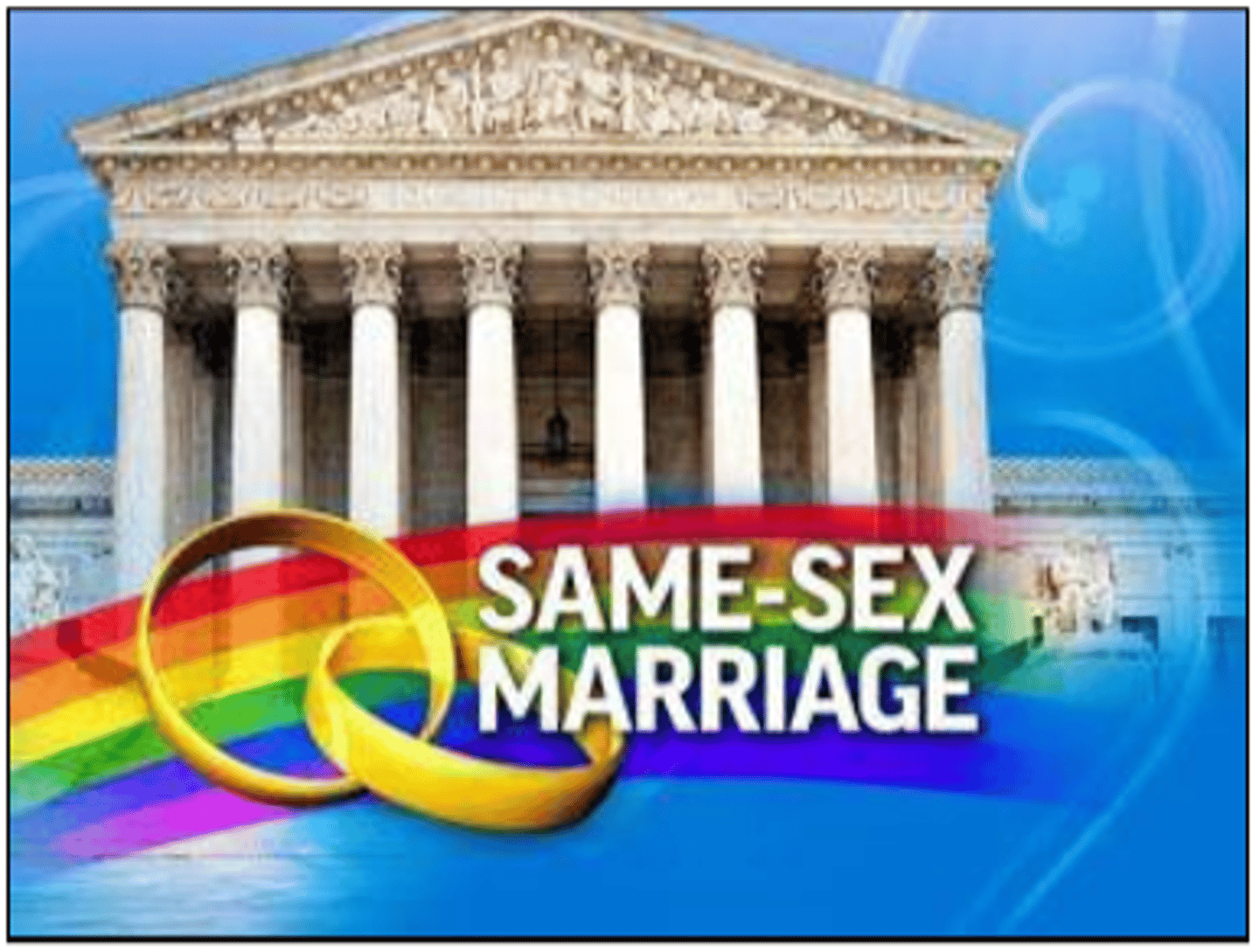
common law marriage
- may be established by couples cohabiting and acting in every way as though married (owning property in common, filing joint income taxes, etc.) even though they have not been through a formal wedding ceremony and have no license
- recognized as valid if established in states allowing then --> 42 states have abolished such marriages as of 2020
- reason: states recognize marriage to be a legal contract that carries with it rights and responsibilities for both parties, and too many opportunities exist for evading responsibilities, fraud, and all manner of legal complications if one of the couple dies, deserts, or defaults on the implied contract
- e.g. common law spouses may have to go to court to establish that all the elements of a common law marriage existed in their relationship before they may gain access to a spousal right, such as access to the other spouse's pension or inheritance of their property

divorce and annulment
- 'grounds', or legally acceptable requirements for divorce are divided into:
- NO-FAULT
- FAULT
- ANNULMENT

no-fault vs. fault divorce
NO-FAULT DIVORCE
- there is no assumption of fault by either marriage partner for the marital breakup
FAULT DIVORCE
- traditionally such things as adultery, cruelty, desertion, insanity, and alcoholism --> used in states retaining fault for issues such as child custody and financial settlements *(even if a no-fault divorce has already been granted)
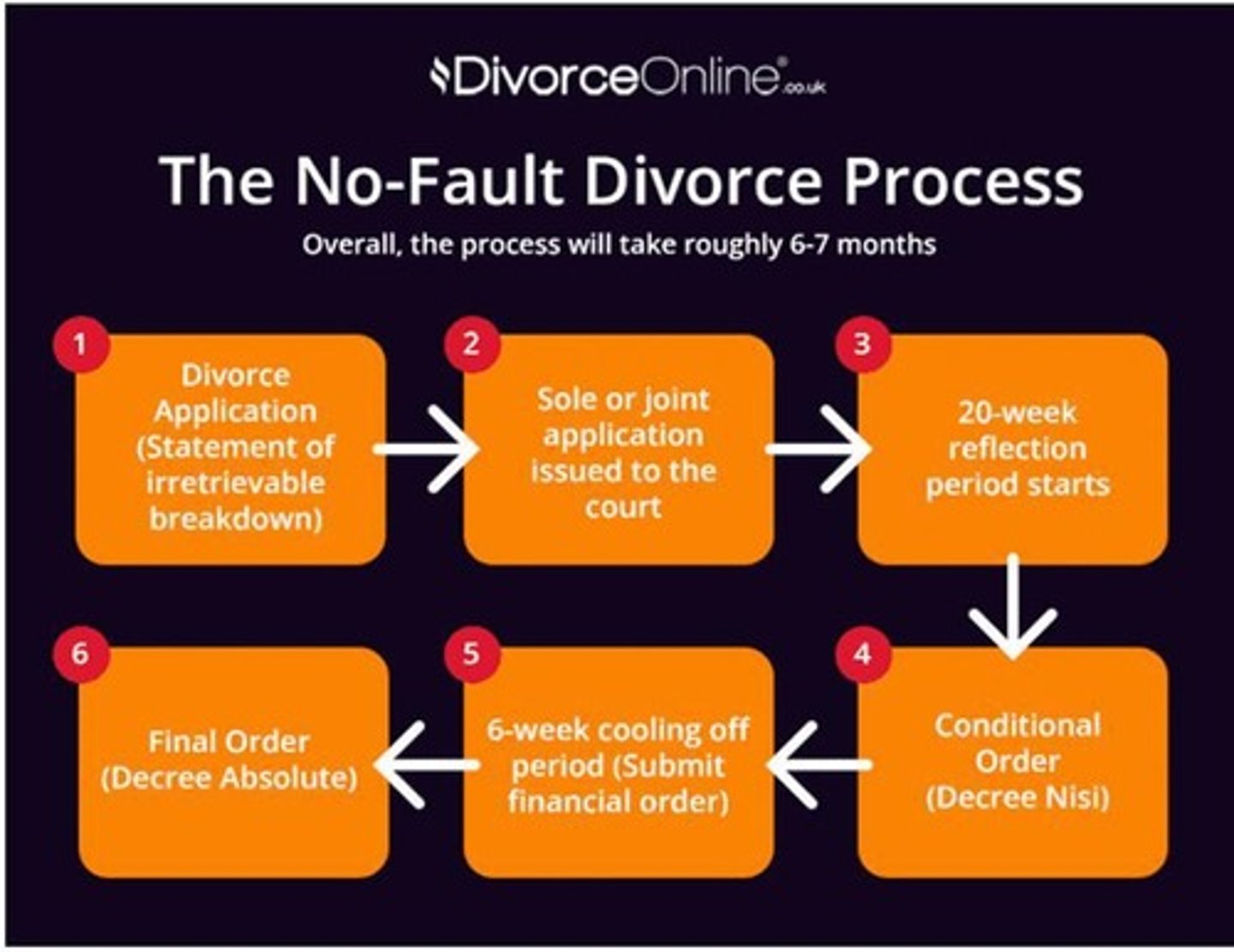
annulment
legal declaration that a marriage never existed because the legal requirements for a valid marriage were not met
- can be obtained if someone lacked the legal ability to consent to marriage (underage, mentally incompetent, drugged, already married, etc.)
- other grounds include: impotence and concealing a sexually transmitted disease or pregnancy from a union with some other person
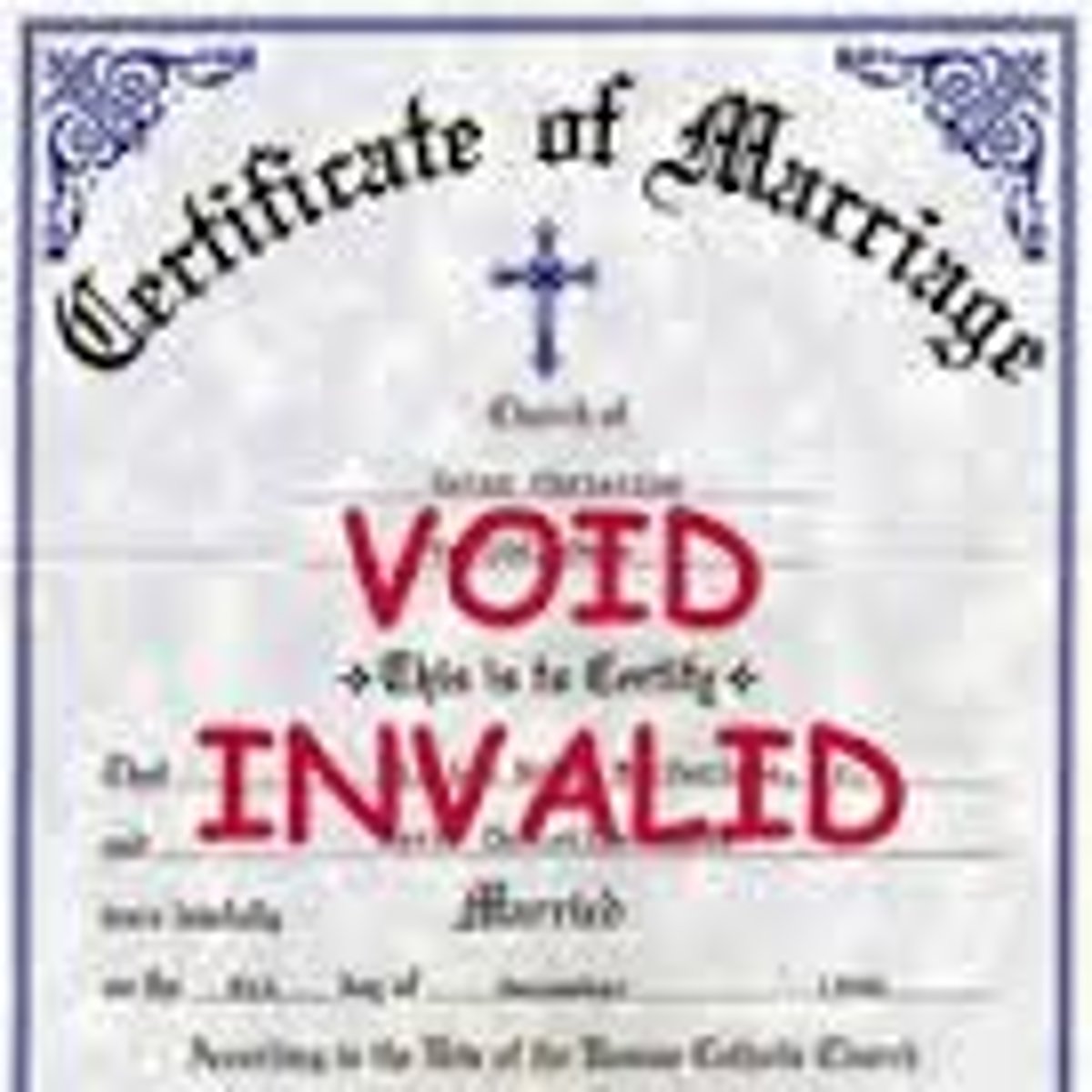
gay sexuality and sodomy PT. 1
- SODOMY (anal sex between two men or man and woman) --> many anti-sodomy statutes in the US have considered sodomy to be synonymous with homosexual conduct
-1920s, most states expanded the definition of sodomy to include fellatio (mouth-penis contact), few states also included cunnilingus (mouth-vagina contact) in their definition
- 1869, the term HOMOSEXUAL was coined and gays and lesbians began to be seen as a distinct category of persons, thus marking the beginning of the focus on the actors (gays and lesbians) rather than the act (sodomy) --> coining of the term and the classification of people into it, legal statutes began to equate sodomitic sex with gay sexuality
- law's stance on gay and lesbian sexuality was also influenced by the rise of psychiatry in the mid to late nineteenth century --> for many years, homosexuality was considered by the American Psychiatric Association (APA) to be a disease
- 1973, APA removed homosexuality from its list of mental diseases --> APA then considered it to be a variant of human sexuality and has characterized it as a "sexual preference," implying ‘choice’
- despite the evolving acceptance of gays and lesbians in society + growing respect for privacy rights, the majority of states still had anti-sodomy laws on their books through the 1990s
- with onset of AIDS epidemic in 1980s, laws against gay sexual conduct were enforced to 'reduce harm'

gay sexuality and sodomy PT. 2
- the court upheld the Georgia anti-sodomy law in BOWERS V. HARDWICK (1986)
- using the rational-basis standard of review ("is there a bona fide/genuine/realistic state interest served by the statute?"), the court sided with Georgia, but the written opinions made it quite clear that the decisions were influenced more by the judges' personal moral views than by the established/developing principles of constitutional law
- 2003, total of 18 states still had laws on the books forbidding consensual sodomy regardless of the sex of the partners or even marital status + 4 other states had anti-sodomy laws aimed at gays only
- the court overruled its BOWERS decision in LAWRENCE V. TEXAS (2003) + invalidated all remaining sodomy statutes throughout the US
- the men appealed their conviction on privacy grounds and on 14th Amendment equal protection grounds because the Texas law prohibited sodomy between same-sex partners but not between opposite-sex partners and was thus unconstitutional
- Justice KENNEDY wrote the majority (6-3) opinion in LAWRENCE + turned to international precedent
--> noted that the Court's reasoning in BOWERS had "been rejected by the European Court of Human Rights [ECHR], and that other nations have taken action consistent with an affirmation of the protected right of homosexual adults to engage in intimate, consensual conduct."
- in referring to the ECHR, Kennedy brought up the fact that England and Wales had legalized consensual homosexual activity in 1967 and Scotland in 1980
- in a DUDGEON V. UNITED KINGDOM (1980) cited by Justice Kennedy, the ECHR invalidated Northern Ireland's sodomy laws on privacy and human rights grounds --> thus, LAWRENCE brought US law into conformity with laws governing privacy rights in other Western democracies
![<p>- the court upheld the Georgia anti-sodomy law in BOWERS V. HARDWICK (1986)</p><p>- using the rational-basis standard of review ("is there a bona fide/genuine/realistic state interest served by the statute?"), the court sided with Georgia, but the written opinions made it quite clear that the decisions were influenced more by the judges' personal moral views than by the established/developing principles of constitutional law</p><p>- 2003, total of 18 states still had laws on the books forbidding consensual sodomy regardless of the sex of the partners or even marital status + 4 other states had anti-sodomy laws aimed at gays only</p><p>- the court overruled its BOWERS decision in LAWRENCE V. TEXAS (2003) + invalidated all remaining sodomy statutes throughout the US</p><p>- the men appealed their conviction on privacy grounds and on 14th Amendment equal protection grounds because the Texas law prohibited sodomy between same-sex partners but not between opposite-sex partners and was thus unconstitutional</p><p>- Justice KENNEDY wrote the majority (6-3) opinion in LAWRENCE + turned to international precedent</p><p>--> noted that the Court's reasoning in BOWERS had "been rejected by the European Court of Human Rights [ECHR], and that other nations have taken action consistent with an affirmation of the protected right of homosexual adults to engage in intimate, consensual conduct."</p><p>- in referring to the ECHR, Kennedy brought up the fact that England and Wales had legalized consensual homosexual activity in 1967 and Scotland in 1980</p><p>- in a DUDGEON V. UNITED KINGDOM (1980) cited by Justice Kennedy, the ECHR invalidated Northern Ireland's sodomy laws on privacy and human rights grounds --> thus, LAWRENCE brought US law into conformity with laws governing privacy rights in other Western democracies</p>](https://knowt-user-attachments.s3.amazonaws.com/21171c33-2cb9-4ff7-b631-6b23fa03defa.jpg)
RATIONAL-BASIS STANDARD OF REVIEW
- lowest level of judicial scrutiny
- determines if a law is constitutional by checking if it is rationally related to a LEGITIMATE GOVERNMENT INTEREST --> law must serve a valid purpose, such as public health, safety, or welfare
- used when a law does not involve a fundamental right or suspect classification and requires the government's action to have a logical connection to a valid purpose, even if it's not the best way to achieve that goal
- government is presumed to be acting constitutionally, and the burden of proof is on the person challenging the law
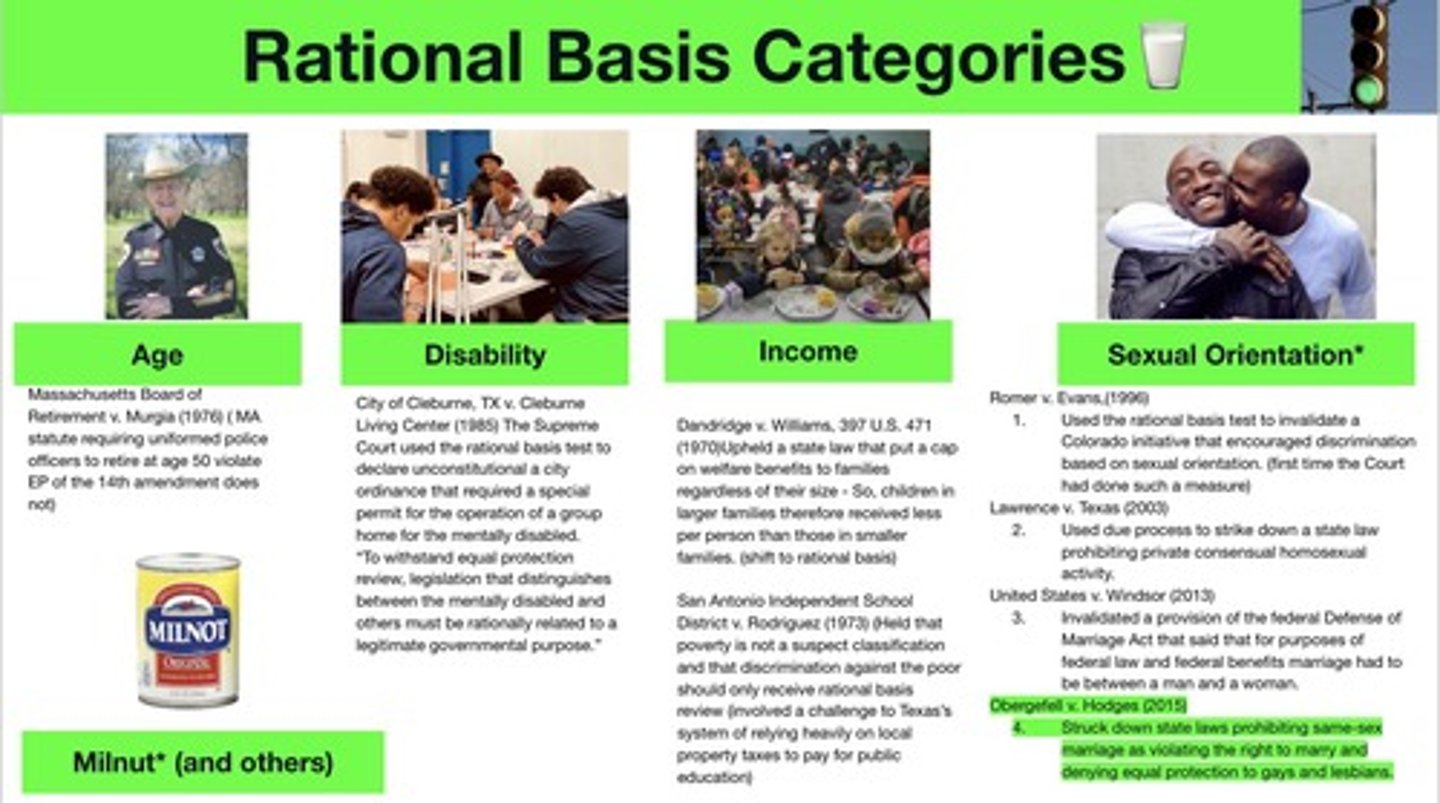
BOWERS V. HARDWICK (1986)
- MICHAEL HARDWICK and another male were arrested after they were found engaging in mutual oral sex by a police officer who had entered HARDWICK's apartment to serve a misdemeanor arrest warrant for an unrelated offense
- the local prosecutor declined to press charges, but HARDWICK sued the Georgia attorney general (BOWERS), hoping to have the sodomy law declared unconstitutional
- the case eventually wound up in the Supreme Court, with HARDWICK claiming that his privacy rights had been violated
- using the rational-basis standard of review (the law must have some reasonable justification, and the government does not have to provide a compelling or even the best reason for it --> "is there a bona fide state interest served by the statute?"), the Court sided with Georgia, but the written opinions made it quite clear that the justices' moral inclinations had trumped evolving constitutional law
- court overruled its BOWERS decision in LAWRENCE V. TEXAS (2005)

LAWRENCE V. TEXAS (2005), & DUDGEON V. UNITED KINGDOM (1980)
- LAWRENCE + GARNER were caught engaging in anal sex in Lawrence's apartment by a deputy sheriff responding to a false report of a "weapons disturbance" inside
- were arrested, convicted, and fined $200 each
- the men appealed their conviction on privacy grounds and on 14th Amendment equal protection grounds because the Texas law prohibited sodomy between same-sex partners but not between opposite-sex partners and was thus unconstitutional
- Justice KENNEDY wrote the majority (6-3) opinion in LAWRENCE + turned to international precedent
--> noted that the Court's reasoning in BOWERS had "been rejected by the European Court of Human Rights [ECHR], and that other nations have taken action consistent with an affirmation of the protected right of homosexual adults to engage in intimate, consensual conduct."
- in referring to the ECHR, Kennedy brought up the fact that England and Wales had legalized consensual homosexual activity in 1967 and Scotland in 1980
- in a DUDGEON V. UNITED KINGDOM (1980) cited by Justice Kennedy, the ECHR invalidated Northern Ireland's sodomy laws on privacy and human rights grounds --> thus, LAWRENCE brought US law into conformity with laws governing privacy rights in other Western democracies
![<p>- LAWRENCE + GARNER were caught engaging in anal sex in Lawrence's apartment by a deputy sheriff responding to a false report of a "weapons disturbance" inside</p><p>- were arrested, convicted, and fined $200 each</p><p>- the men appealed their conviction on privacy grounds and on 14th Amendment equal protection grounds because the Texas law prohibited sodomy between same-sex partners but not between opposite-sex partners and was thus unconstitutional</p><p>- Justice KENNEDY wrote the majority (6-3) opinion in LAWRENCE + turned to international precedent</p><p>--> noted that the Court's reasoning in BOWERS had "been rejected by the European Court of Human Rights [ECHR], and that other nations have taken action consistent with an affirmation of the protected right of homosexual adults to engage in intimate, consensual conduct."</p><p>- in referring to the ECHR, Kennedy brought up the fact that England and Wales had legalized consensual homosexual activity in 1967 and Scotland in 1980</p><p>- in a DUDGEON V. UNITED KINGDOM (1980) cited by Justice Kennedy, the ECHR invalidated Northern Ireland's sodomy laws on privacy and human rights grounds --> thus, LAWRENCE brought US law into conformity with laws governing privacy rights in other Western democracies</p>](https://knowt-user-attachments.s3.amazonaws.com/14aed4b2-be94-4741-a195-e637c9139126.jpg)
the law and gay rights vs. religious liberty
- gay/lesbian persons who were once classified as having a disease are now a quasi-protected category in the aftermath of court's landmark rulings in UNITED STATES V. WINDSOR (2013) + OBERGEFELL V. HODGES (2015)
- CIVIL RIGHTS ACT OF 1964 lists the necessary characteristics of protected classes as having (a) a history of long-standing, widespread discrimination; (b) economic disadvantage; and (c) immutable characteristics (some characteristic that is beyond the person's control)
- judges' concerns regarding religious liberty in the aftermath of OBERGEFELL V. HODGES (2015) --> the intolerance, intimidation, and legal threats once aimed at gays and lesbians are now aimed at people with strong religious beliefs who think that marriage should be only between a man and a woman
- religion is the original protected category in the United States --> religious freedom was so fundamental to the Founding Fathers that they enshrined it in the very first words of the Bill of Rights: second clause of 1st Amendment
- while government cannot interfere with religious beliefs, it can interfere with religious practices --> REYNOLDS v. UNITED STATES (1878), court upheld REYNOLD'S conviction for bigamy, which Reynolds claimed was an integral part of his Mormon faith --> court indicated that bigamy was a crime under federal law and that to provide constitutional protection for any and all religion-based practices could 'open the door too wide'

concept of compelling government interest
- the accepted standard for weighing the government's interest against a constitutional right is that there must be a compelling government interest to do so
1st Amendment rights…
- "compelling" is defined from case to case using the strict scrutiny standard of review (government must prove the law serves a "compelling governmental interest" and is "narrowly tailored" to achieve that interest through the "least restrictive means")
- if the courts decide that a government interest is compelling, that interest must be achieved by the "least restrictive means" available
- changes in the definition of marriage have resulted in the collision of constitutional rights that pose seemingly irreconcilable demands (claims or goals that are so incompatible they cannot be brought into agreement or harmony) --> for people who have religions that do not accept the legitimacy of same-sex marriage, to comply with state demands means that they must violate religious doctrine, which they sometimes refuse to do
- e.g. conflicting demands from church and state over same-sex couple adoptions, small businesses (photographers, florists) refusing service to same-sex couples' i.e. weddings
STRICT SCRUTINY STANDARD OF REVIEW
- highest standard of judicial review
- used to determine if a law is constitutional
- for a law to pass, the government must prove it serves a "COMPELLING GOVERNMENT INTEREST" --> government must show a very important or crucial reason for the law, such as national security
- AND is "NARROWLY TAILORED" to achieve that interest, meaning it is the least restrictive means possible
- applied when a law involves suspect classifications (like race or national origin) or infringes on a fundamental constitutional right
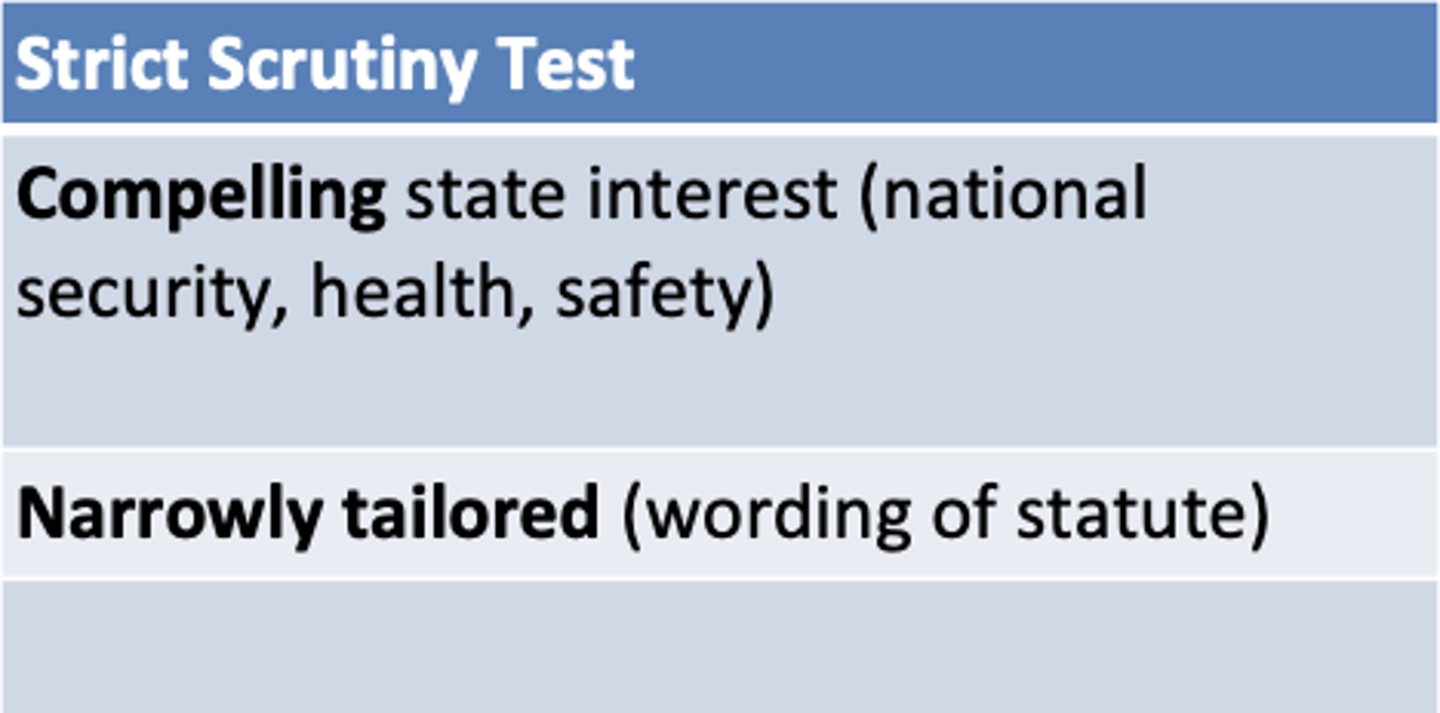
COMPELLING INTEREST
constitutional law that requires the government to prove it has a very strong and important reason to interfere with an individual's constitutional rights
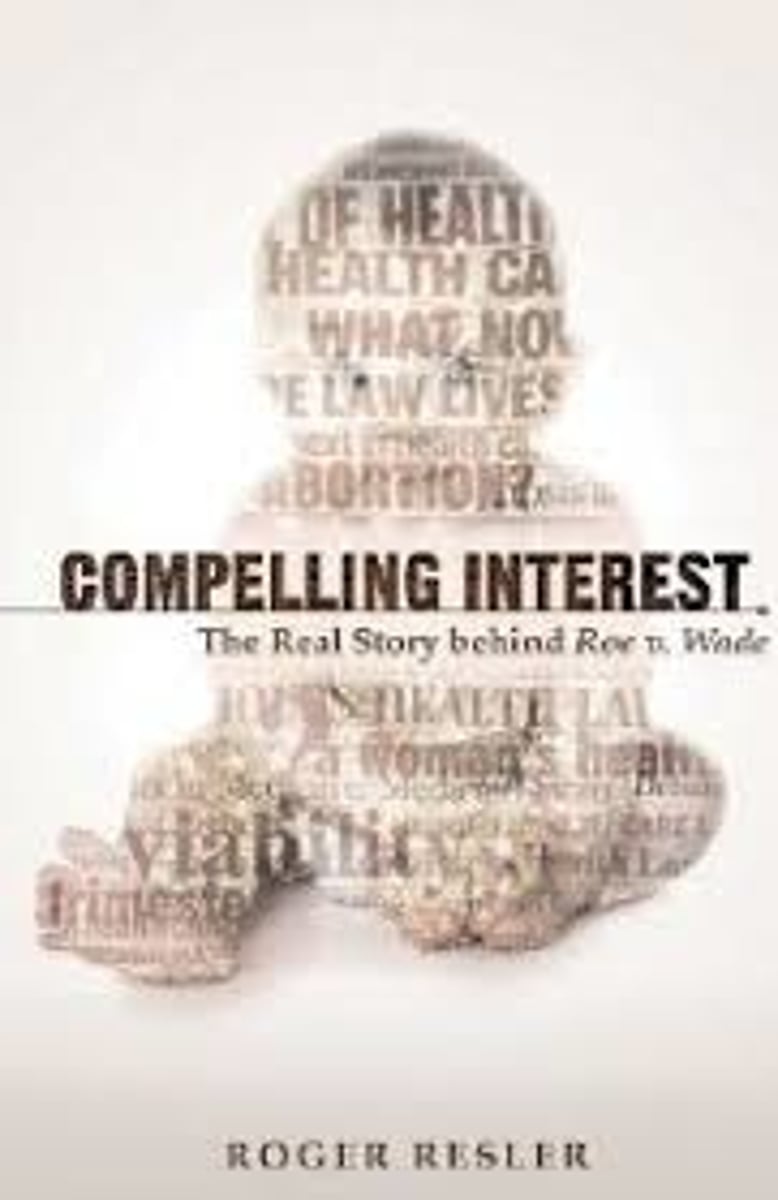
can the rights of both gays and religious dissenters be protected?
- gays and lesbians claim a right beyond private behavior: the right to have their love and commitment publicly recognized in marriage --> but religious people wish to live by the tenets of their faith in their public lives, not just in their places of worship
- issue: determining if we can both recognize gay marriage and accommodate religious liberty without burdening either side because neither side can change
- a balanced approach that denies neither same-sex civil marriage nor the religious objector's refusal to participate in it seems appropriate
- at the same time, the American public does not want the state to interfere with the rights of religious people to live their lives in accordance with their religious consciences
- e.g. conscientious objectors, excused from military duty
- e.g. religious physicians, cannot be made to perform abortions
- e.g. during Prohibition, Catholics and Jews were allowed to serve wine at communion; Muslims cannot be required to transport alcohol
- e.g. Catholic Church can deny women ordination as priests
- e.g. prison employees cannot be made to participate in executions of the condemned
- e.g. Amish parents may take their children out of school and provide them with vocational training rather than state-mandated academic education
- BURWELL V. HOBBY LOBBY STORES, INC. (2014), court ruled that the company does not have to provide contraceptive methods to its employees that violate the Christian beliefs of the company's owners

BURWELL V. HOBBY LOBBY STORES, INC. (2014)
BURWELL V. HOBBY LOBBY STORES, INC. (2014), court ruled that the company does not have to provide contraceptive methods to its employees that violate the Christian beliefs of the company's owners
- court ruled that "closely held" corporation owners have religious rights under the Religious Freedom Restoration Act (RFRA) of 1993
- court decided that the US Department of Health and Human Services' claim that Hobby Lobby must provide contraceptives does not hold because while the government has found "least restrictive means" that it has used for religious and nonprofit organizations, these have not been offered to closely held corporations
- in this case, by "least restrictive means" the Court is saying that there are other ways of accessing the contraceptives in question that are less restrictive of religious liberty than the Department of Health and Human Services mandate (e.g. other stores, government provision of contraceptives, tax credits, or other financial support for those who want them)
- RFRA mandates that the strict scrutiny standard of review be used when determining whether the free exercise clause has been violated --> law was passed as a barrier to growing government encroachment on religious liberty (e.g. using the same logic exercised in BURWELL, there are ways of accessing photographers, florists, and bakers without restricting the religious liberty of others)

Religious Freedom Restoration Act (RFRA) of 1993
a law that ensures that interests in religious freedom are protected and provided a strict scrutiny standard, requiring narrowly tailored regulation serving a compelling government interest in any case substantially burdening the free exercise of religion, regardless of the intent and general applicability of the law.
- determined unconstitutional in 1997 with City of BOERNE V. FLORES

BOERNE V. FLORES (1997)
- court held that the RFRA applies only to the federal government and NOT to the states *(as it gave Congress too much power to create rules for state and local governments)
- responding to this ruling, 21 states passed their own RFRAs, but Oregon and Washington, the two states involved in the flower and bakery cases, were not among them
- goal: to arrive at a just solution without resorting to coercive legal tactics that have profound negative effects on one side or the other
- to be accepted, the policies put into effect must be widely regarded as just, necessary, and not destructive of anyone's fundamental values

feminist jurisprudence/feminist legal theory
the practice of examining and evaluating the law from a feminist perspective
- the law is the codification of a culture's normative practices that are deeply masculine in nature, since they reflect male visions, realities, and goals
- because all known societies have been controlled by men, the law, insofar as it has been applied to gender relationships and issues, has been the written embodiment of PATRIARCHY
- split into 2 debates -->
(1) REFORMIST/RADICAL,
(2) SAMENESS/DIFFERENCE

patriarchy
"rule of the father"
- any social system that is male dominated at all levels, from the family to the highest reaches of government, and supported by the belief of overall male superiority
- patriarchal society: 'male' traits, such as competitiveness, aggressiveness, autonomy, and individualism, are lauded and 'female' traits, such as intimacy, connection, cooperation, and nurturance, while appreciated, are downplayed
- society where men and boys are valued over women and girls

feminist jurisprudence debates: REFORMIST/RADIAL, SAMENESS/DIFFERENCE
(1) REFORMIST/RADICAL
- reformist --> usually liberals, want to retain but reconfigure the current legal systems so that it recognizes women as equal to men
- radical --> views the present system as so corrupted by patriarchy that is must be abandoned and replaced with one that is free of biases
(2) SAMENESS/DIFFERENCE
- sameness --> issue of whether women should be treated equally with males due to the sameness of the sexes, OR
- difference --> treated differently based on relevant differences between the sexes
---> LED TO COMPROMISE POSITION THAT ASSERTS THE LAW MUST ACCEPT RELEVANT DIFFERENCES BUT SHOULD FOCUS ON THEIR CONSEQUENCES RATHER THAN ON DIFFERENCES PER SE

misogyny
the hatred, devaluation, and ridicule of women
- ideology that justifies and maintains men's subordination of women

coverture
a married couple became one person --> the man
- a married woman had no legal rights or obligations separate from those of her husband, and her whole existence was merged into that of her husband
- financially: woman's economic resources absorbed into the couple and under the husband's control
- widows and unmarried women had somewhat greater autonomy, yet subject to rape, social exclusion, harassment
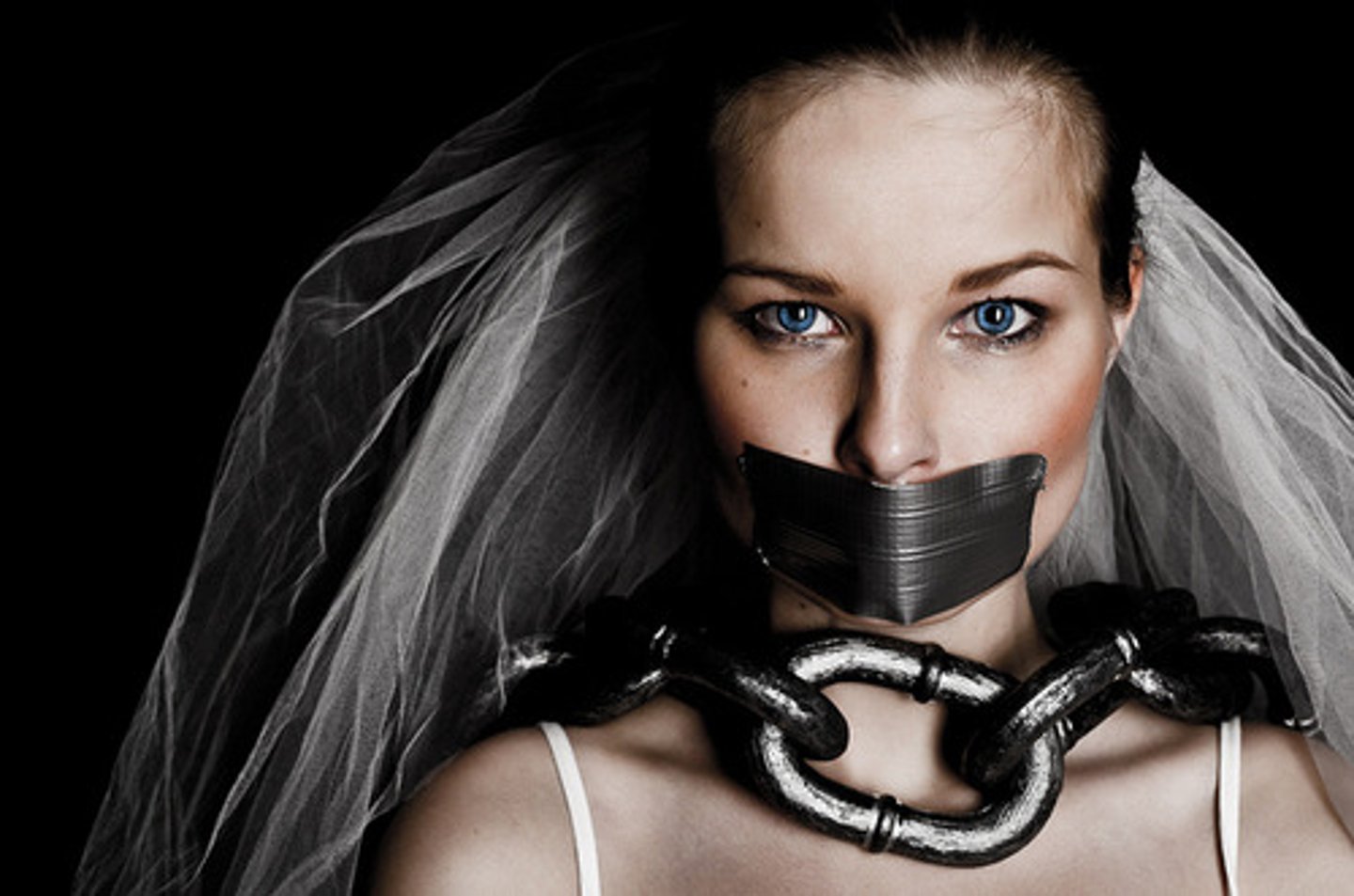
women's suffrage — MINOR V. HAPPERSETT (1874) & 19TH AMENDMENT
a woman's right to vote
- MINOR V. HAPPERSETT (1874) --> rejected women's right to vote
- ELIZABETH CADY STANTON: early prominent voting rights for women, 1848 Seneca Falls Convention
- SUSAN ANTHONY
- 19th amendment - 1920
- 72 between Seneca Falls and the 19th amendment; 480 state legislative campaigns - very substantial organizational effort
(ex: rape)...
- historical: forced sexual intercourse by male of female was viewed as 'not possible inside marriage', 'not possible between same sex partners'
- historical origins of crime focused more on lost economic and social value to husbands and fathers rather than suffering victim
- NOW: sexual assault = sexual penetration without consent, considerable challenges remain in terms of formal and informal standards of proof

petite treason (versus homicide)
if husband killed his wife, the crime was simply a murder punishable by hanging
- if a wife killed her husband, her very own 'sovereign', the seriousness of the crime has elevated to that of treason - fore which the punishment was burning at the stake
- murder: husband unlawfully kills wife
- petite treason: wife kills husband
- Text omits the fact that it applied to a number of other crimes, like male having sex with employer's wife, priest killing superior prelate, etc.

gender and the 14th amendment...
- a "protected category" under the Constitution
- STRICT SCRUTINY --> for protected (race, religion, etc.) categories
- RATIONAL BASIS --> unprotected categories
- INTERMEDIATE --> in between, for gender and sexual orientation

domestic violence
any abusive act (physical, sexual, or psychological) that occurs within a domestic setting
- often called 'intimate partner violence' now to account for diversity of relationships + for abusive acts between intimate partners who are not cohabitating
- generally, does NOT include child abuse, which is treated under different laws
- Violence Against Women Act (VAWA) - 1994, funding and training for advocates, judges, prosecutors, etc.
- mandatory arrest policies - dramatic impact on rates of domestic violence

women and legal profession...
HISTORY:
- significant barriers to women entering legal profession
- excluded by law before mid to late 1800's
- ARABELLA BAB MANSFIELD + MYRA BRADWELL + MARILLA RICKERO
- change after WWII, but major structural obstacles until 1960's
- consider: memoirs of Sandra Day O'Connor and RBG
- continuing pay, work equity and cultural norms at least into 1990's
CURRENT:
- women greater than 50% of law students (2016)
- women about 60% of lawyers
- continued substantial structural barriers to women as "equity partners"
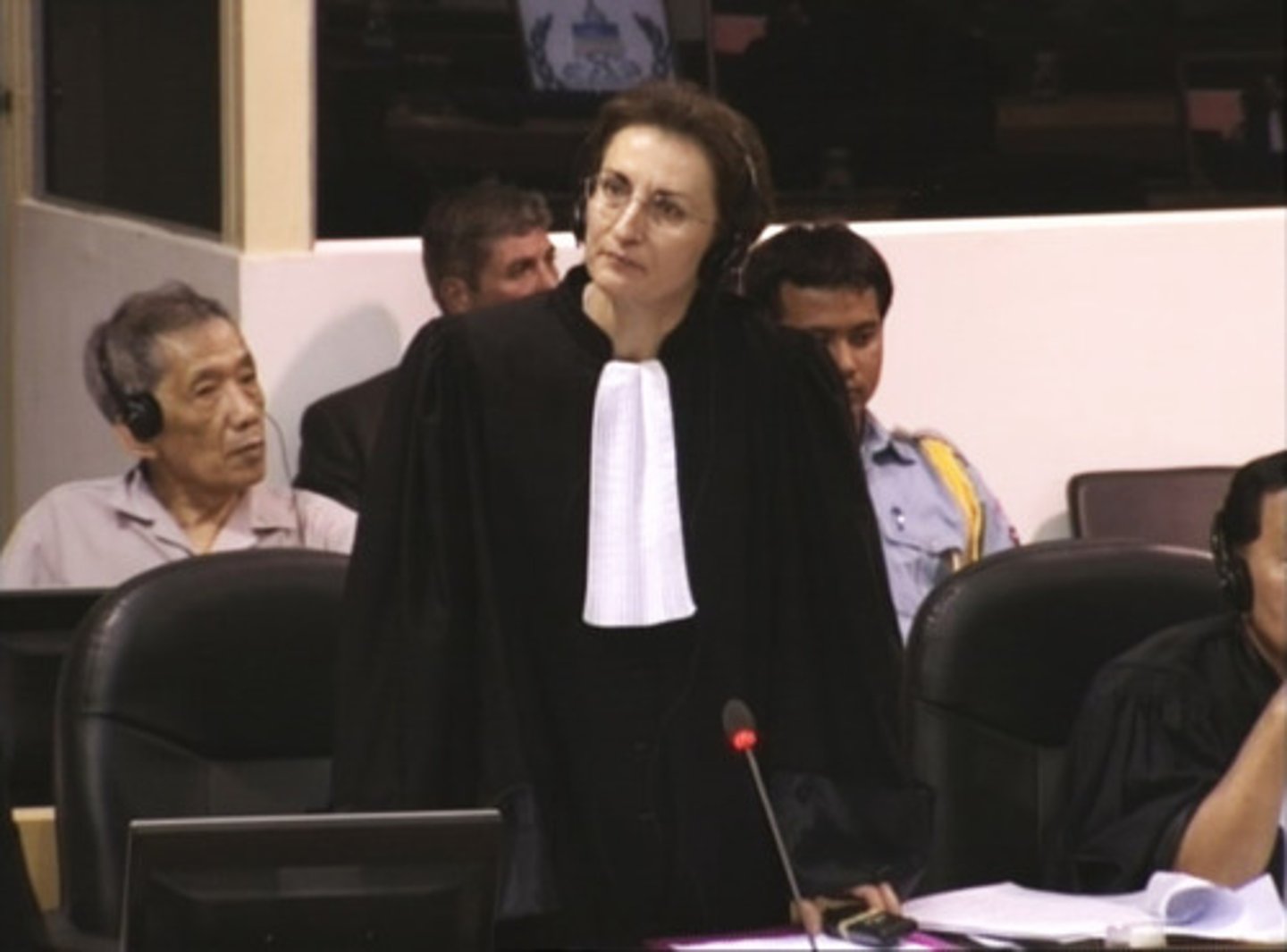
dowry
money, property, or goods that a bride's family gives to the groom or his family when they marry

substantive due process
idea that the Constitution protects certain rights that are not explicitly or specifically mentioned in its text (protects UNenumerated laws/rights)
- they are a component of the liberty that is protected by the due process clause
- legislatures cannot pass laws that infringe on substantive rights, such as free speech and privacy
- protects fundamental rights from government interference, even if those rights are not explicitly listed in the Constitution
- requires that laws themselves be fair and justified, not just that the government follow proper procedures
- this doctrine is based on the 5th + 14th Amendments, which prohibit the government from depriving a person of life, liberty, or property "without due process of law"
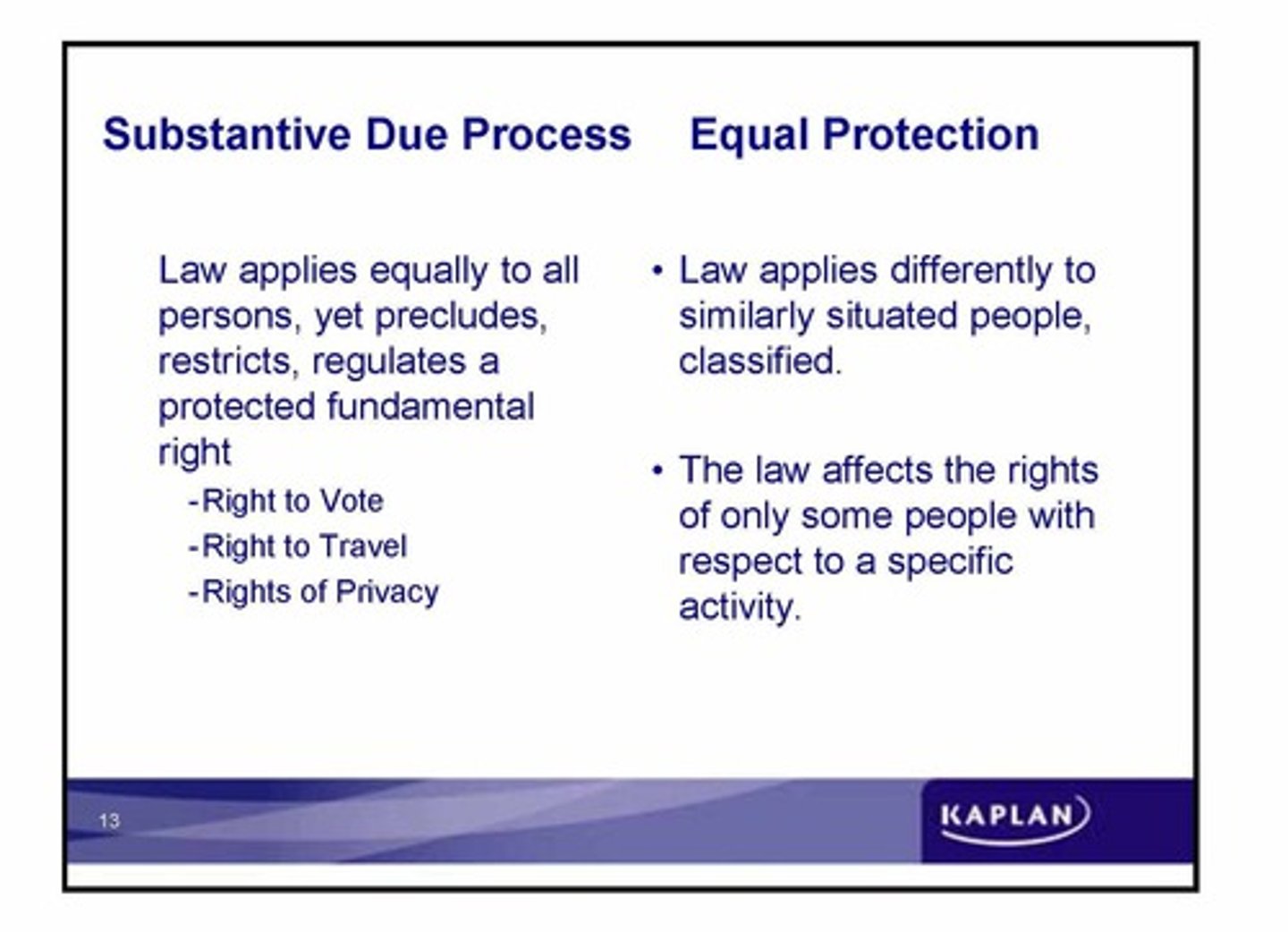
1st Amendment - right to association
protects five fundamental freedoms: religion, speech, the press, assembly, and petition
- protects the RIGHT TO ASSOCIATE, which is the ability to form groups and associate with others who share similar beliefs for purposes like speech, assembly, religion, and petition --> allows individuals to gather peacefully for lawful purposes, such as protests, demonstrations, and other collective expressions, without government interference (e.g. protest for women's/gay rights)
- while not explicitly written, the Supreme Court has recognized this right as an essential component of other 1st Amendment freedoms
- ...this includes the right of expressive association (forming groups for political or expressive ends) and the related freedom of assembly
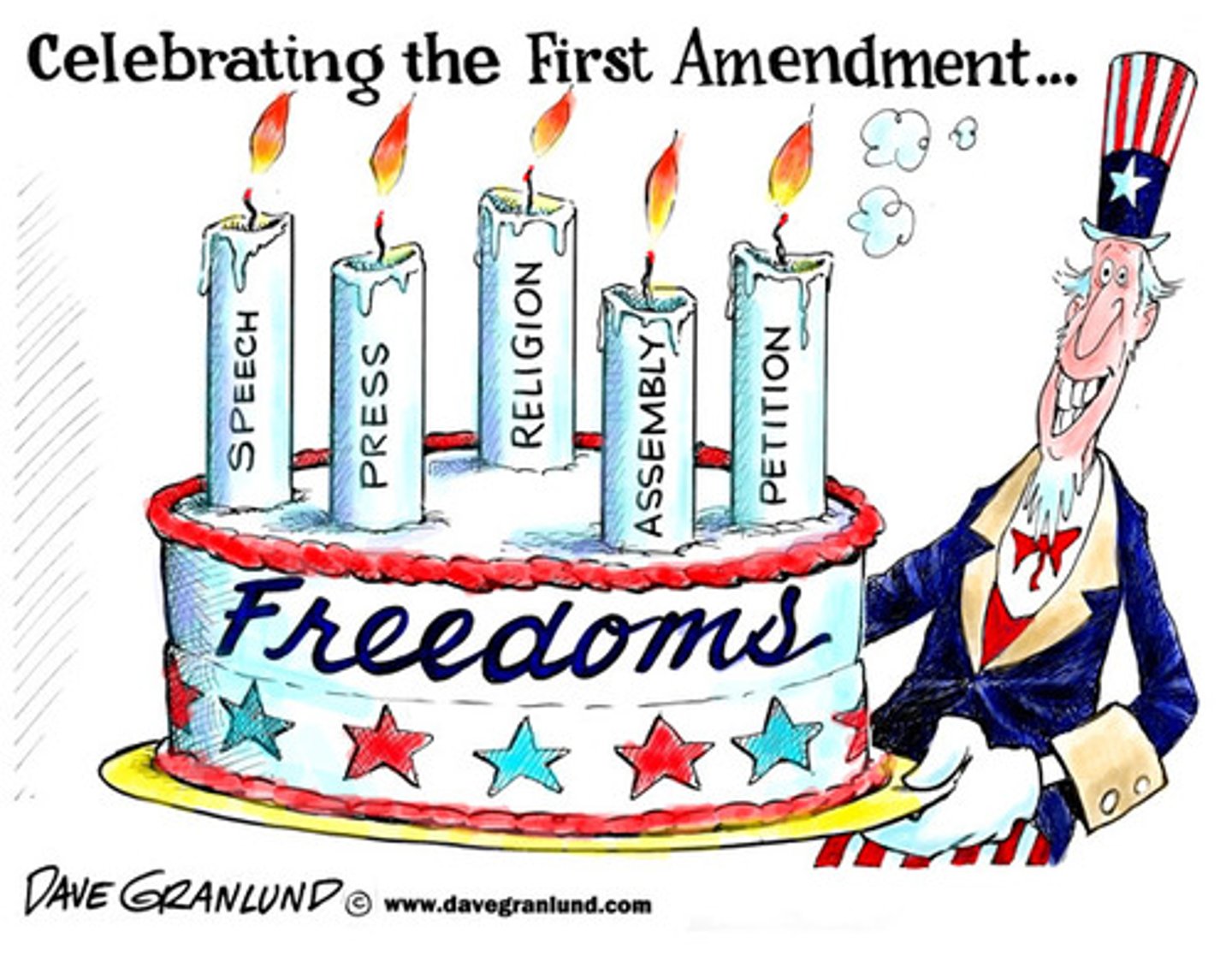
2nd Amendment
right to keep and bear arms

3rd Amendment
no quartering of militia

4th Amendment
protection against unreasonable searches and seizures

5th Amendment
- miranda rights
- double jeopardy
- right to due process, due process clause

6th Amendment
- right to a speedy trial
- jury trial
- representation by an attorney

7th Amendment
right to a trial by jury in civil, federal cases
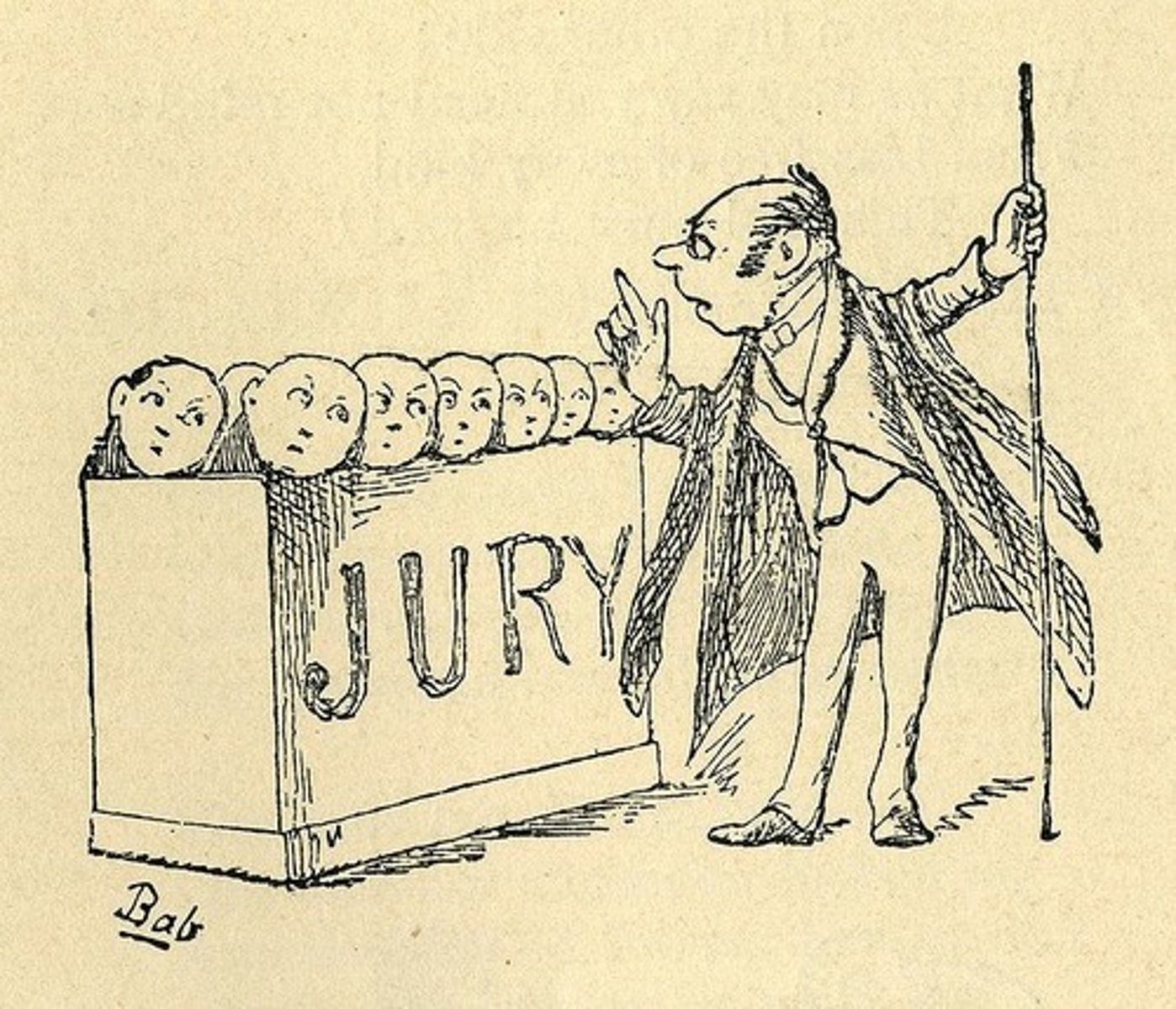
8th Amendment
no cruel or unusual punishment

9th Amendment
the list of rights specifically mentioned in the Constitution + Bill of Rights is NOT a complete or exclusive list of all the rights that American citizens have

10th Amendment
the powers not delegated to the United States by the Constitution, nor prohibited by it to the States, are reserved to the States respectively, or to the people

14th Amendment
- DUE PROCESS CLAUSE --> the government must give people a chance to defend themselves in a fair hearing before infringing on their rights
- EQUAL PROTECTION CLAUSE --> requires states to treat similarly-situated people equally under the law, government cannot treat different groups of people unfairly, must have a valid reason for any laws that result in differential treatment - especially concerning fundamental rights like race or national origin
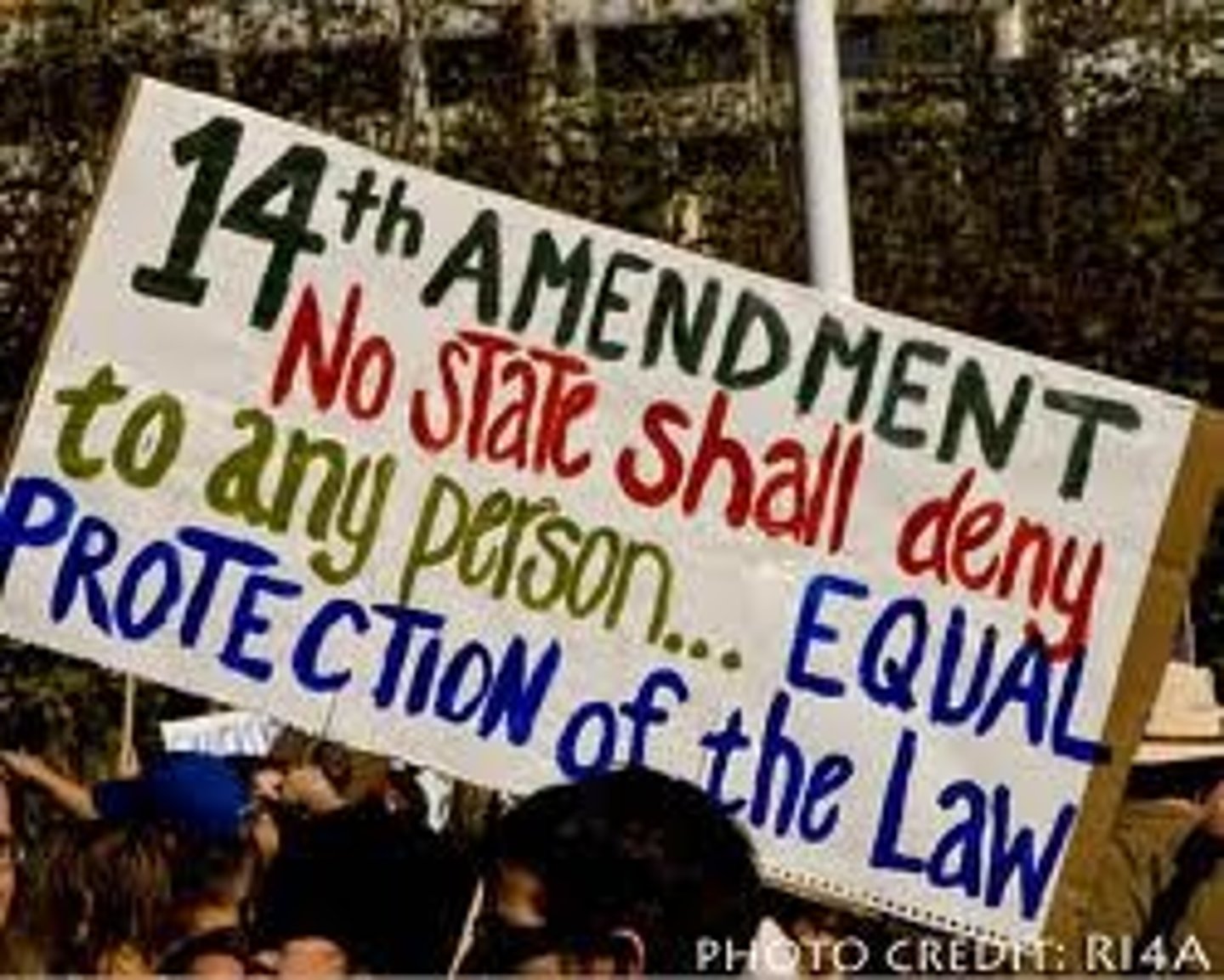
right to privacy -- amendments?
fundamental human right to be free from unwarranted intrusion, surveillance, or disclosure of one's personal information, activities, and decisions
- 1st Amendment --> protects the freedom of speech, press, assembly, and religion, Supreme Court has interpreted this to include a fundamental "freedom of association" + corresponding right to privacy in one's associations (e.g. STANLEY V. GEORGIA, 1969)
- 3rd Amendment --> (no quartering soldiers)
- 4th Amendment --> (prohibiting unreasonable searches and seizures, which generally requires the government to have probable cause and a warrant before conducting a search; e.g. STANLEY V. GEORGIA, 1969)
- 5th Amendment --> (due process clause, protection against self-incrimination)
- 9th Amendment --> (right to privacy is not enumerated in Constitution)
- 14th Amendment --> (right to privacy is not explicitly in the Constitution but has been established through the Supreme Court's interpretation of the 14th Amendment's due process clause, government cannot infringe on a person's "life, liberty, or property" without due process, and this right to liberty extends to certain personal decisions that fall within a protected zone of privacy)

incorporation
state and local governments are restricted from violating fundamental rights, just as the federal government is, creating a more uniform application of civil liberties across the United States
- justices interpreted the due process clause of the 14th Amendment as prohibiting states from abridging (reducing, removing) certain individual rights
--> many of these rights are included in the Bill of Rights, hence these rights were included/INCORPORATED in the definition of due process
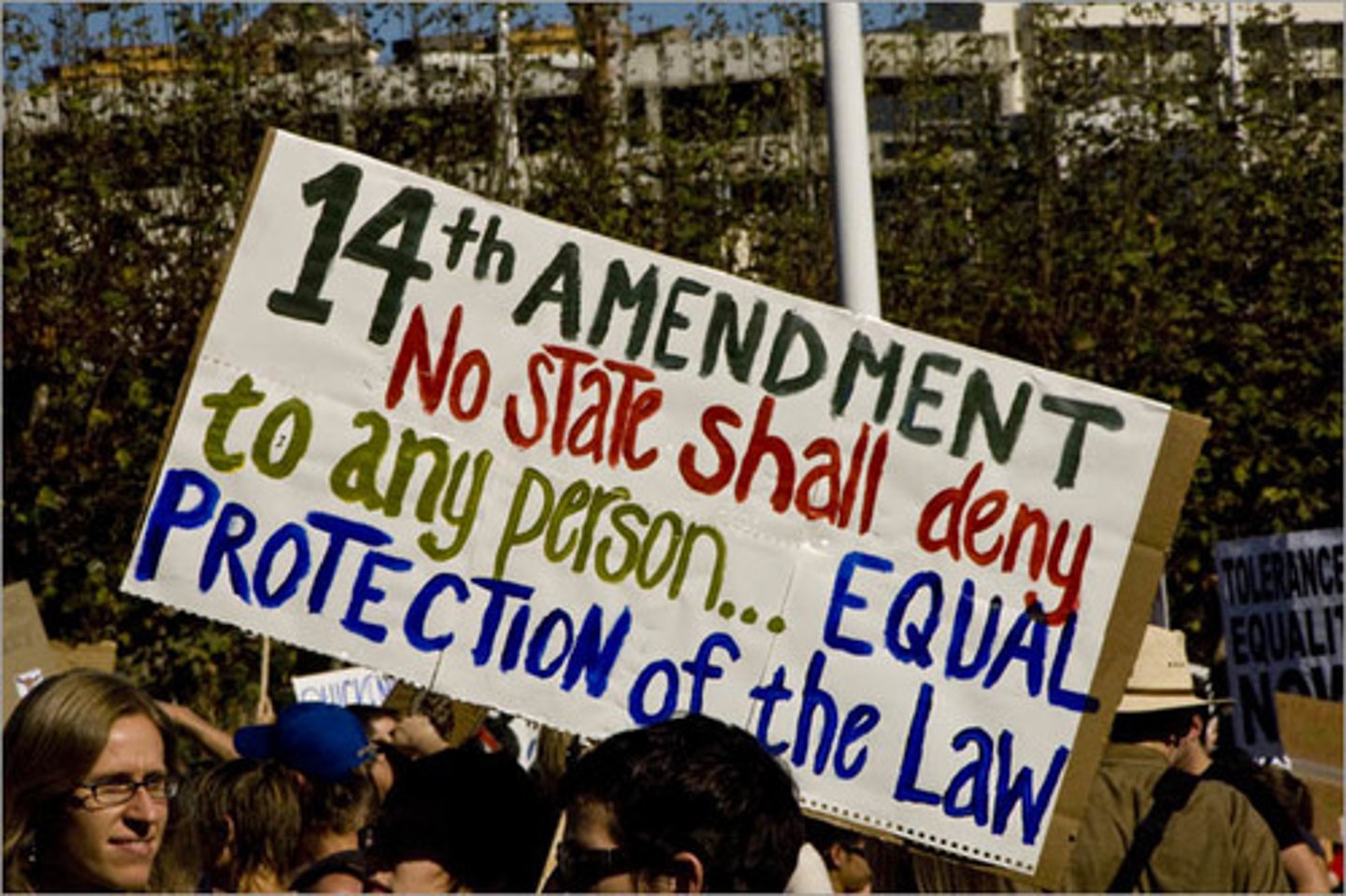
standard of review -- strict scrutiny, intermediate, rational basis...
level of deference an appellate court gives to a lower court's decision, acts as a gauge for how strictly the higher court will examine the lower court's ruling, determining whether to affirm or reverse it
(1) STRICT SCRUTINY:
- applied in cases where a law infringes on a fundamental right or involves a suspect classification like race
- law is presumed unconstitutional and is difficult for the government to defend
- compelling government interest: the government must prove there is a very strong, vital reason for the law
- narrowly tailored: the law must be the least restrictive means of achieving that compelling interest; there can't be a less intrusive way to accomplish the goal
- applies to laws that affect fundamental rights (like freedom of speech or marriage) or discriminate based on race or national origin
- burden of proof - the government has the burden to prove the law is constitutional, not the individual challenging it
(2) INTERMEDIATE:
- review laws that may violate equal protection, particularly those based on gender or legitimacy
- to pass this test, the government must prove the law serves an important government interest + is substantially related to achieving that interest
- this standard is more rigorous than the rational basis test, but less demanding than strict scrutiny
- purpose: to balance individual rights with the government's need to create and enforce laws, especially when laws create classifications based on gender or illegitimacy
- government burden: government must show the law has a substantial connection to achieving an important objective
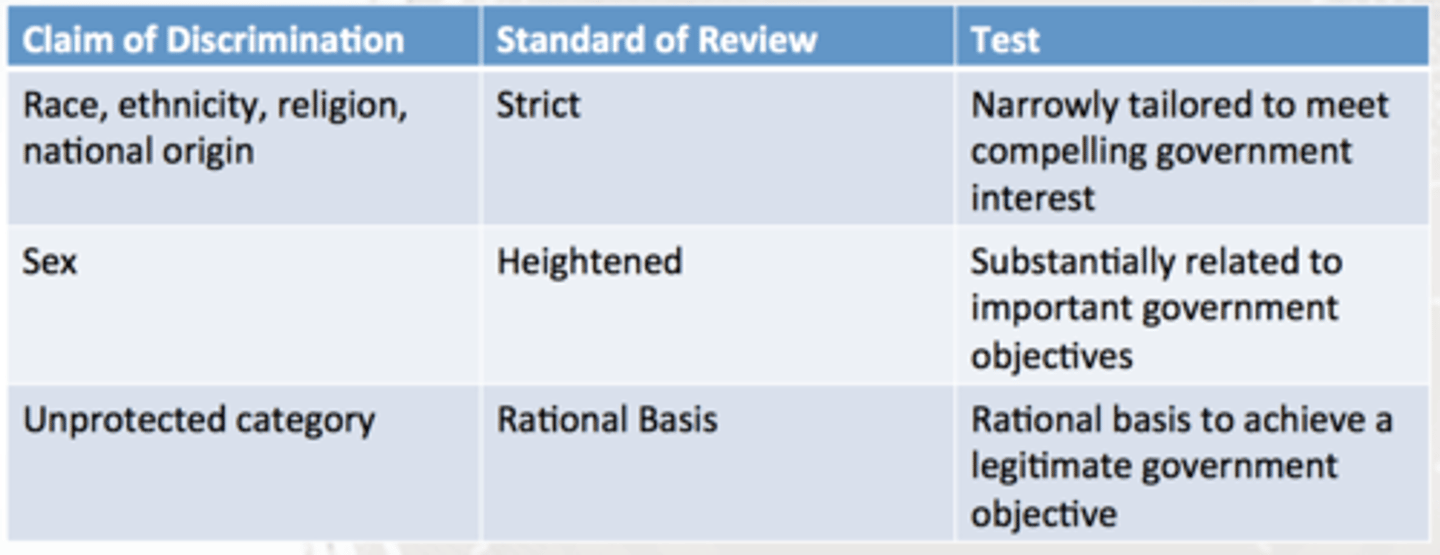
standard of review -- strict scrutiny, intermediate, rational basis... (CONTINUED)
(3) RATIONAL BASIS
- lowest level of judicial scrutiny
- holds that a law is constitutional if it is rationally related to a legitimate government interest
- law doesn't have to be the best way to achieve a goal; it just needs a plausible, non-arbitrary connection to a valid purpose, making it a very lenient test for the government to pass
- lenient standard: easiest test for the government to meet, and the burden is on the person challenging the law to prove it's irrational
- legitimate interest: government's reason for the law must be legitimate, such as public health or consumer protection
- law must be "rationally related" to that legitimate interest; reasonable.
- courts start with the assumption that the law is constitutional, and the challenger must overcome this presumption.
- this standard is applied to most laws that don't involve fundamental rights (like free speech) or suspect classifications (like race or gender), which are subject to stricter scrutiny
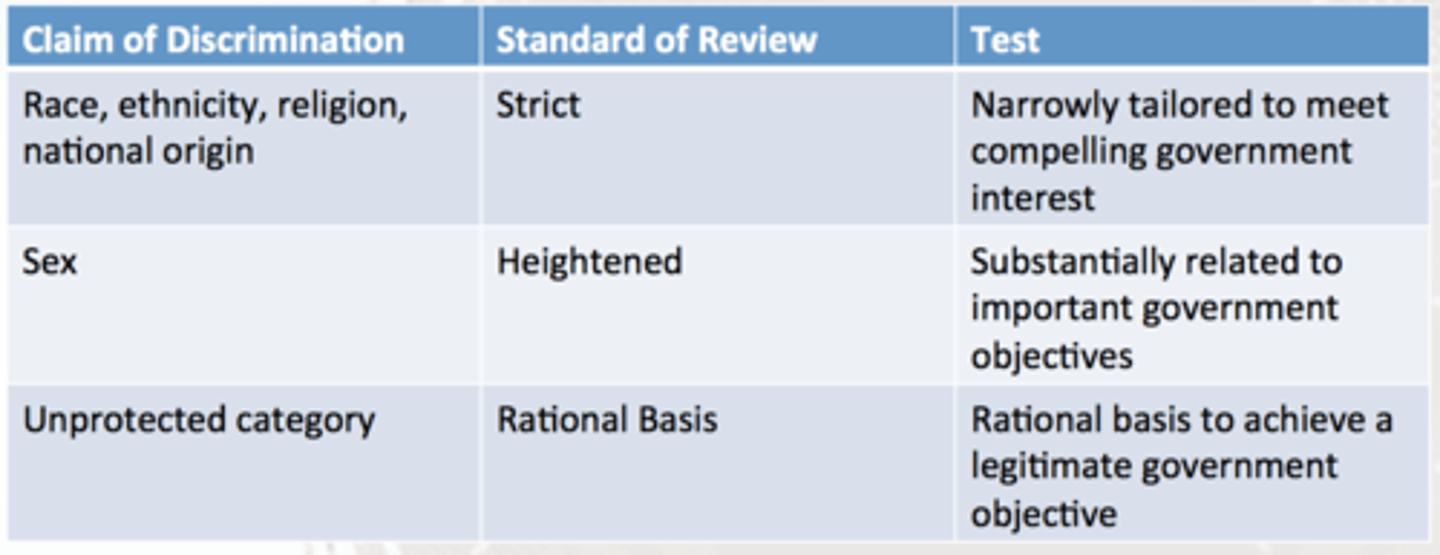
ROE V. WADE (1973) --> DOBBS V. JACKSON WOMEN'S HEALTH ORGANIZATION (2022)
- right to privacy: court held that the right to privacy, protected by the 14th Amendment, was broad enough to encompass a woman's decision whether or not to terminate her pregnancy
- trimester framework: court outlined regulations based on pregnancy stages - 1st trimester (states could not restrict abortion, 2nd trimester (states could impose regulations reasonably related to maternal health), 3rd trimester (states could ban abortion, except when necessary to save the life or health of the mother)
- decision balanced the woman's right to privacy with the state's interests in protecting maternal health and the potentiality of human life
*OVERTURNING OF THE DECISION... (2022)
- court overturned ROE V. WADE in the case of DOBBS V. JACKSON WOMEN'S HEALTH ORGANIZATION (2022)
- decision eliminated the constitutional right to abortion + returned the power to regulate or ban the procedure to individual states
- since the overturning, many states have banned or severely restricted abortion
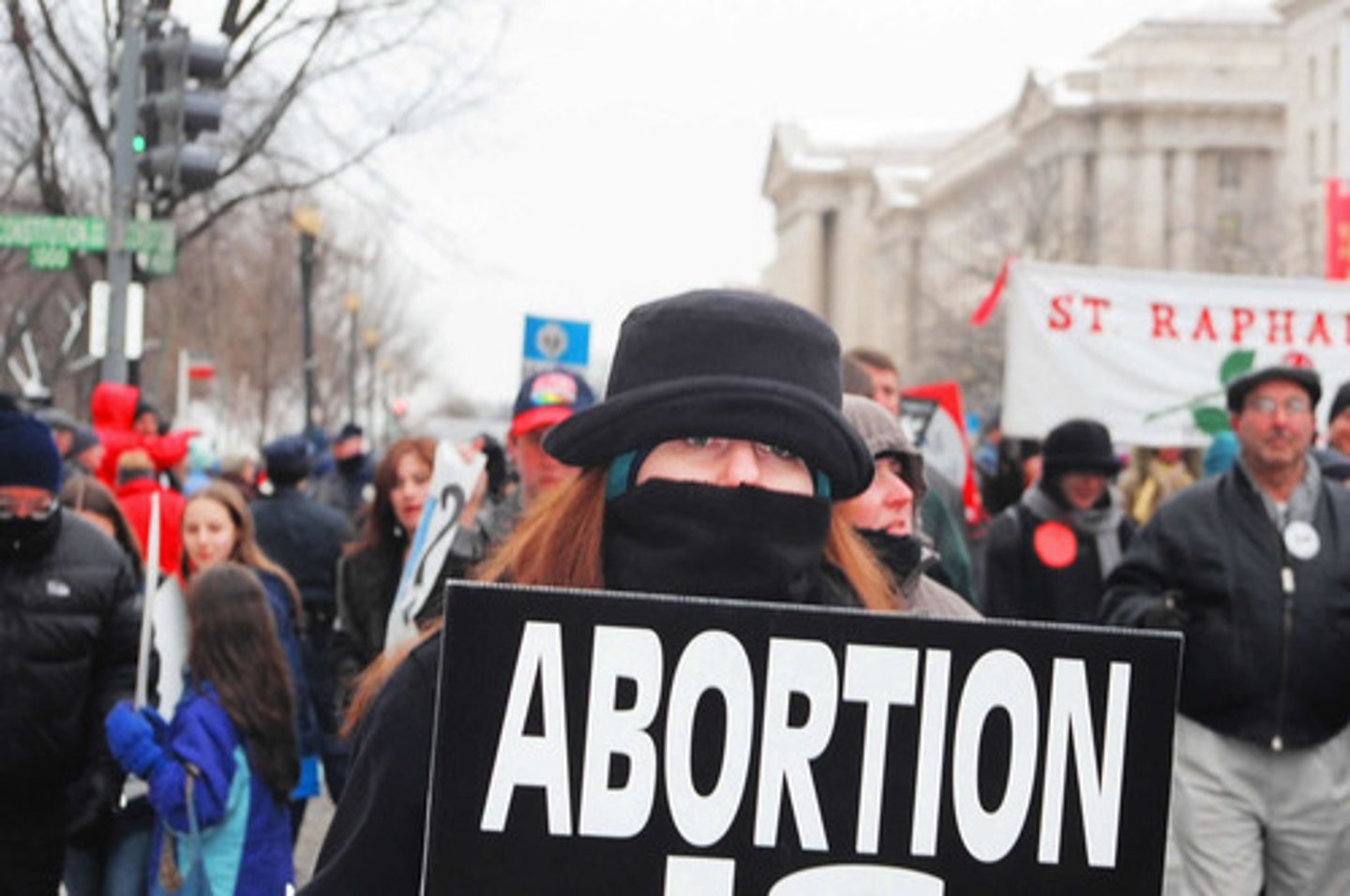
PLANNED PARENTHOOD V. CASEY (1992)
- reaffirmed ROE V. WADE (1973): the court maintained that a woman has the constitutional right to an abortion before fetal viability
- established the "undue burden" standard: the court replaced ROE'S trimester framework with a new standard, states can regulate abortion as long as their regulations do not place a "substantial obstacle" in the way of a woman seeking an abortion before viability
- upheld certain state regulations: the court upheld several provisions of Pennsylvania's law, finding they did not constitute an undue burden: informed consent and 24-hour waiting periods, parental consent for minors, + additional physician and hospital restrictions
- court struck down the spousal notification requirement, deeming it an "undue burden" that could pose a substantial obstacle, particularly for women in abusive relationships

GIDEON V. WAINWRIGHT (1963)
ruled the 6th Amendment guarantees a right to counsel for all criminal defendants, including those who cannot afford an attorney
- court found that the right to legal counsel is "fundamental and essential to a fair trial" + must be provided by the states, overturning the precedent set by BETTS V. BRADY
- as a result, GIDEON was granted a retrial (WITH ATTORNEY) and was ultimately acquitted of the charges
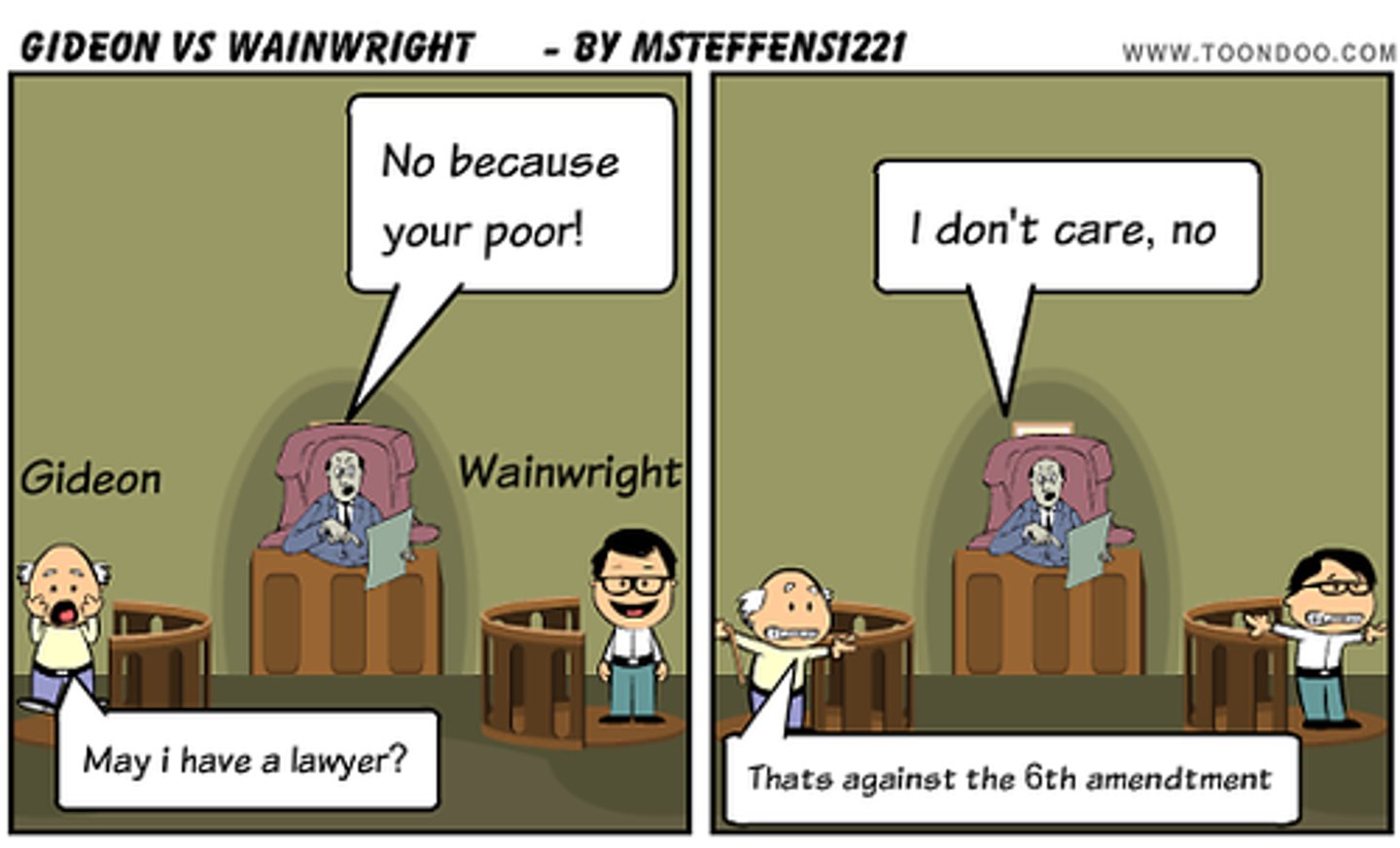
TINKER V. DES MOINES INDEPENDENT COMMUNITY SCHOOL DISTRICT (1969)
-students wore black armbands to school in protest of the Vietnam War
- the school district had a policy against armbands, and students who refused to remove them were suspended
- students' parents sued, arguing the school violated their children's 1st Amendment right to free speech
- court ruled 7-2 in favor of the students, stating that the school's policy was an unconstitutional restriction of their symbolic speech
- the ruling established the "Tinker Test," which states that schools can only regulate student speech if it substantially disrupts the educational environment or infringes on the rights of others
- this case is a landmark decision for student speech rights, ensuring that students' 1st Amendment freedoms are protected in schools, as long as they are not substantially disruptive

salem witch trials -- overview
- due process, bill of rights (rights + freedoms)
- THEOCRACY (government by "god", a religion)
- puritans --> against law to miss church, individualism frowned upon, men and women sit on opposite sides of church, if unfortunate event occurs it is because of sin, PUNISHED BY DEATH FOR BEING A WITCH
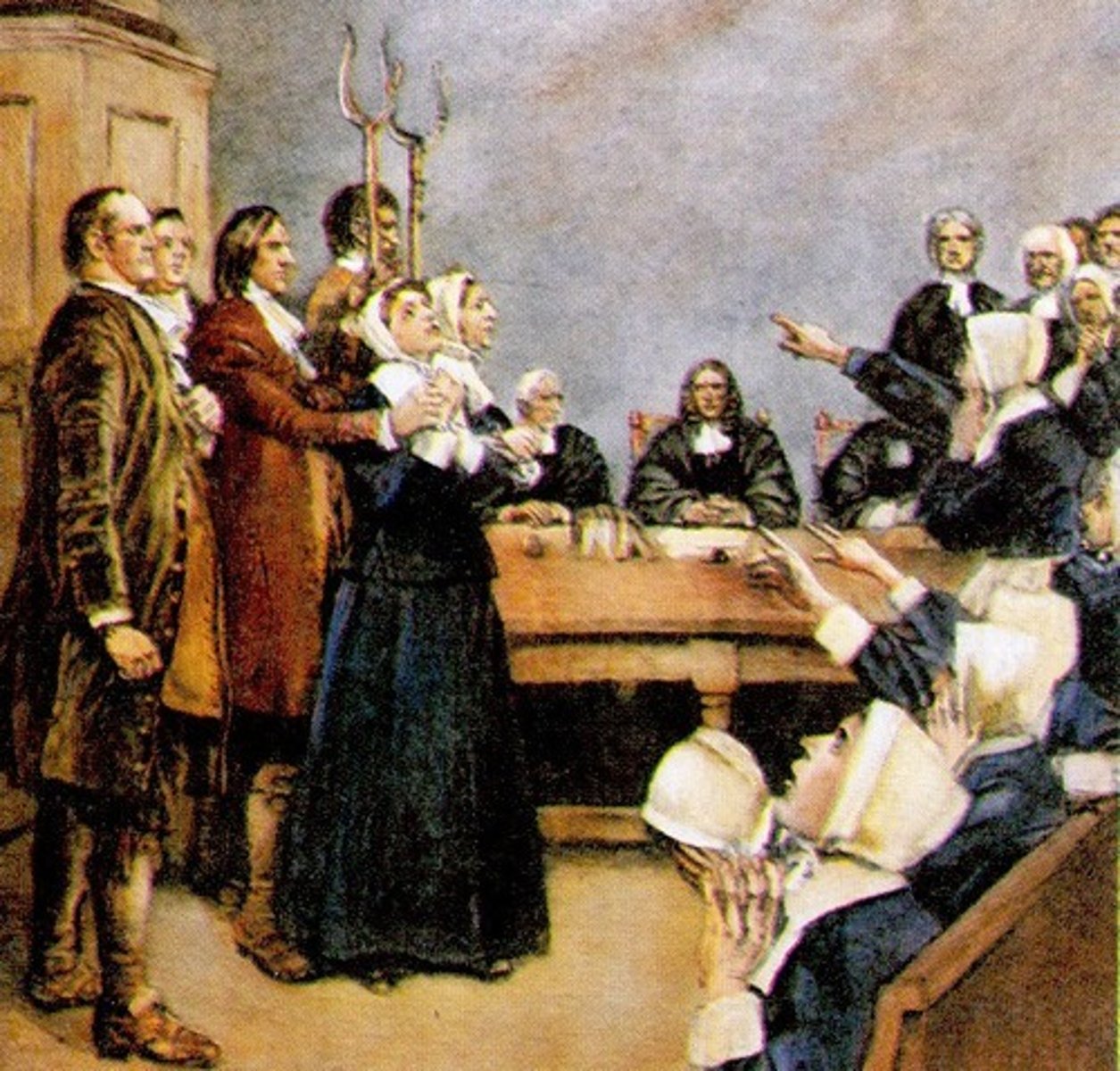
salem witch trials -- separation of church and state...
NOW --> 1st Amendment
THEN --> blurred separation; preliminary hearings began with a prayer, then reading of warrant, role of government was to protect church

salem witch trials -- presumption of innocence
NOW --> accused is presumed innocent, COFFIN V. UNITED STATES (1895) established the presumption of innocence of persons accused of crimes
THEN --> accused is presumed guilty, no bonds required of accuser during salem trials until 1962, made it easier to make witchcraft charges

salem witch trials -- right to defense counsel in criminal case
NOW --> right to defense counsel under 6th Amendment
THEN --> no right to defense counsel, no formal defense by the accused although could present own defense

salem witch trials -- right to remain silent
NOW --> right to remain silent under the 5th Amendment, MIRANDA V. ARIZONA (1966), Miranda Rights
THEN --> no right to silence, your silence may impugn you were a witch, as in Rebecca Nurse's case

salem witch trials -- right to impartial jury trial
NOW --> right to impartial trial and to confront one's accusers, 6th Amendment, right to CROSS EXAMINE STATE'S WITNESSES (ensures that defendants can confront and challenge the reliability and credibility of the witnesses who testify against them), HEARSAY (__ told me that __ did __) and CHARACTER EVIDENCE (information about a person's moral standing or traits, such as honesty or a propensity for violence, that is offered in court to prove they acted in conformity with that character on a specific occasion) is restricted by Rules of Evidence
THEN --> Court of Oyer and Terminer created by Governor not general court, 9 judges, not all lawyers, appointed from Governor's friends, no right to cross examine, hearsay and character evidence is allowed
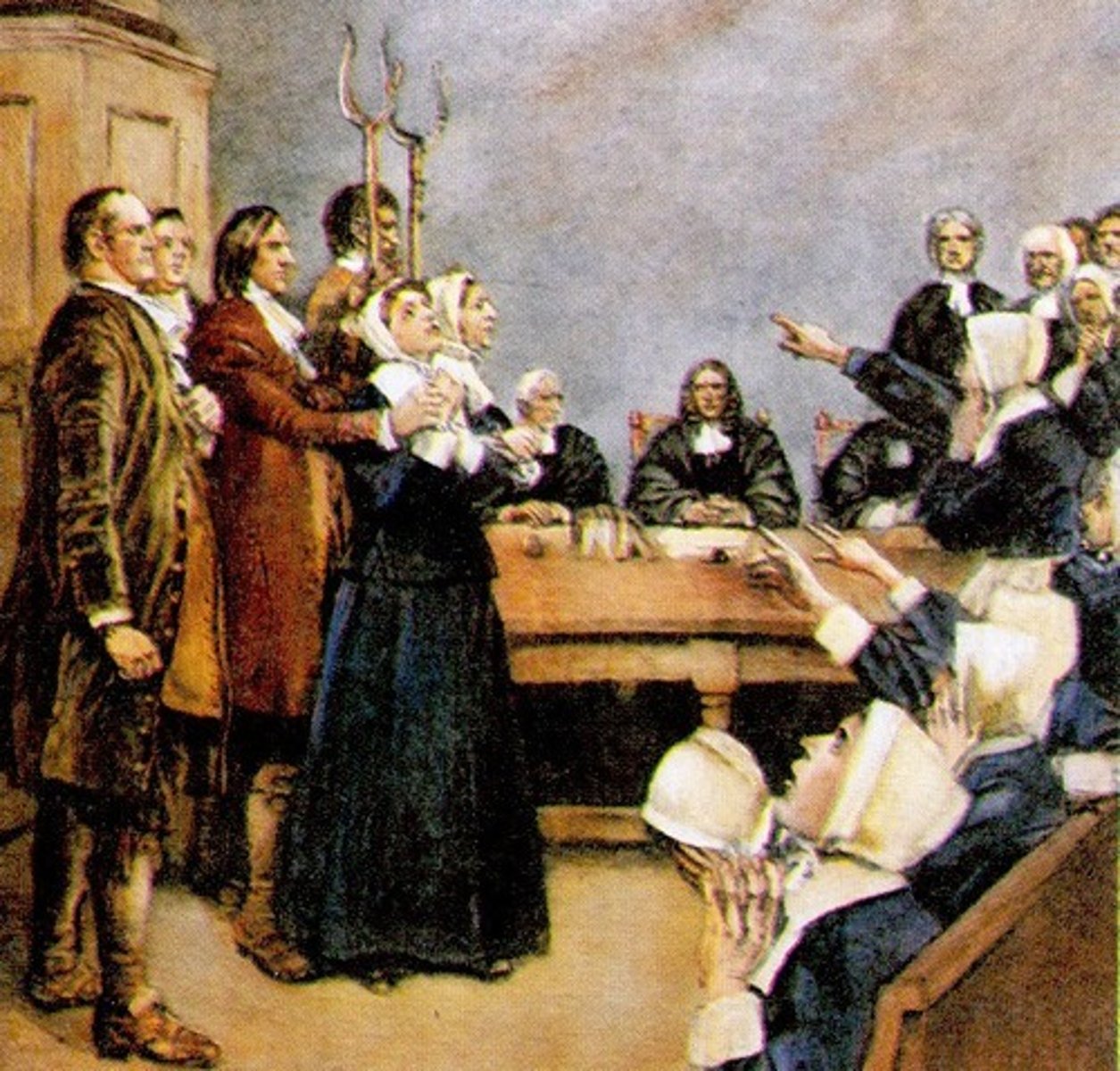
salem witch trials -- right to discovery
NOW --> parties in a legal case are entitled to exchange or obtain relevant evidence and information from one another - only reliable evidence is admitted, with strict rules against hearsay, which is defined as out-of-court statements offered in court to prove the truth of the matter asserted, accused have the constitutional right to legal representation, 6th Amendment guarantees the right to confront and cross-examine witnesses against you, ensuring that testimony is reliable and can be challenged, cases are governed by a comprehensive legal framework that includes robust due process protections to ensure a fair and just outcome, emphasizing fairness, procedural safeguards, and unbiased decision-making
THEN --> primarily based on spectral evidence (visions of the accused), hearsay, public gossip, and physical "witch's marks", accused were not allowed defense lawyers to object to questioning or cross-examine witnesses, right to confront and cross-examine one's accusers was not upheld, which was particularly harmful because much of the "evidence" was based on rumors and out-of-court statements
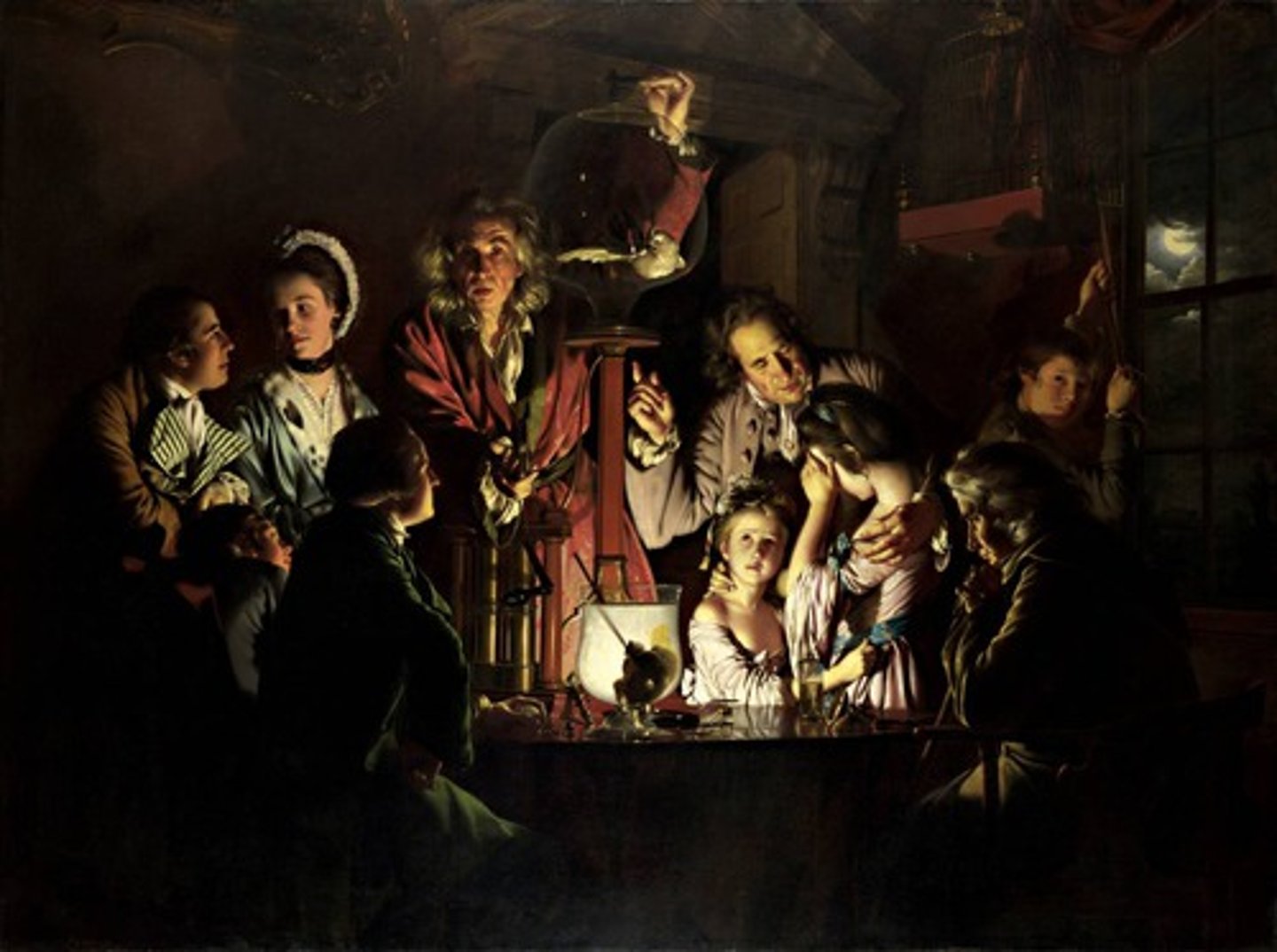
salem witch trials -- right to appeal
NOW --> extensive rights to appeal and habeas corpus (requiring a person under arrest to be brought before a judge or into court, especially to secure the person's release unless lawful grounds are shown for their detention) in capital cases under 8th Amendment
THEN --> once convicted, there was no formal process to appeal the verdict
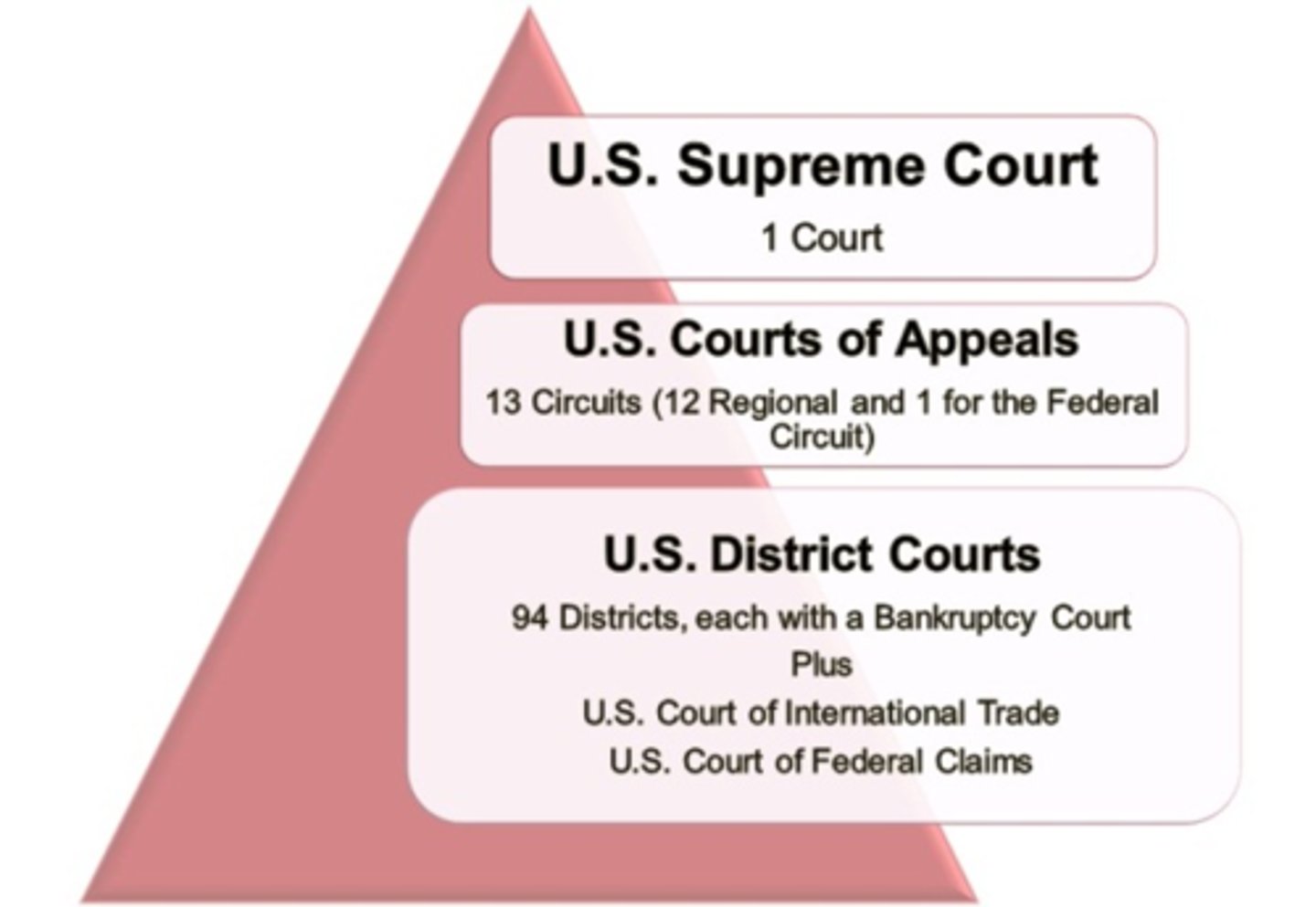
salem witch trials -- [spectral] evidence
NOW --> scientific proof required
THEN --> spectral evidence was invisible, the strength of evidence was 'the devil acting through people'
